TRADITION AND INNOVATION
20 years of ArcelorMittal Poland’s journey under Sanjay Samaddar EXCLUSIVE INTERVIEW

20 years of ArcelorMittal Poland’s journey under Sanjay Samaddar EXCLUSIVE INTERVIEW

GDYNIA WATERFRONT REDEFINING URBAN LIVING BY THE SEA
BPI REAL ESTATE POLAND’S VISION FOR SUSTAINABLE LUXURY LIVING

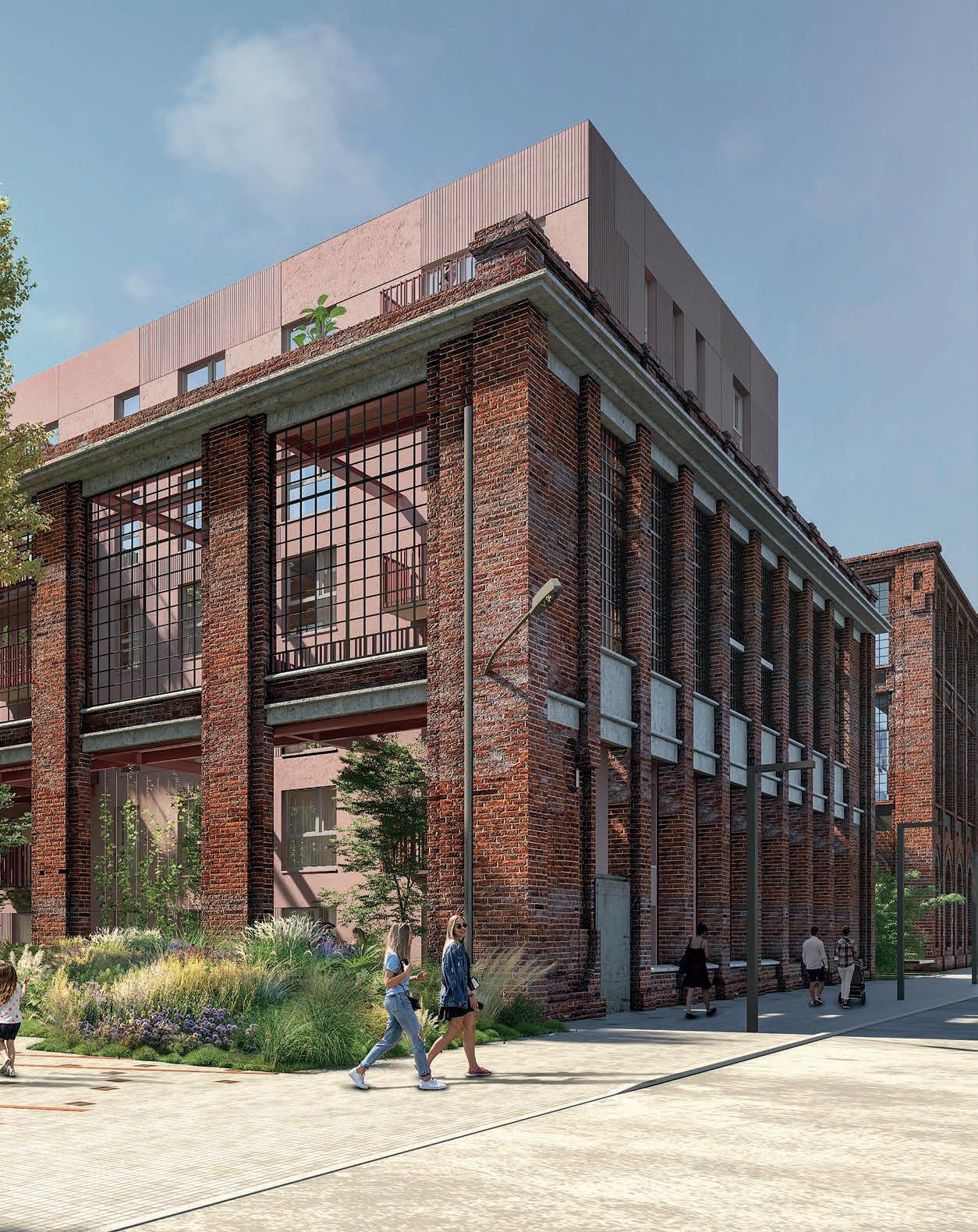
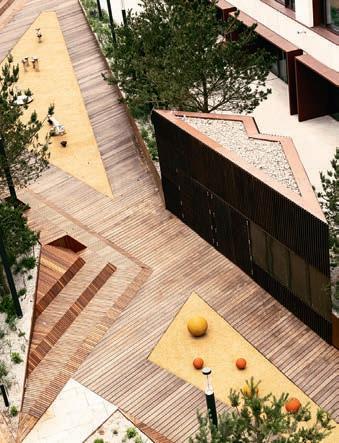
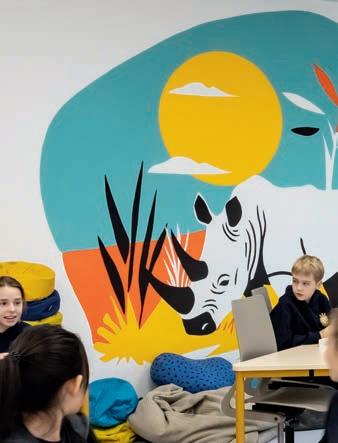
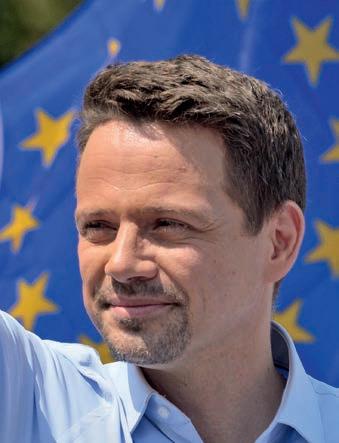
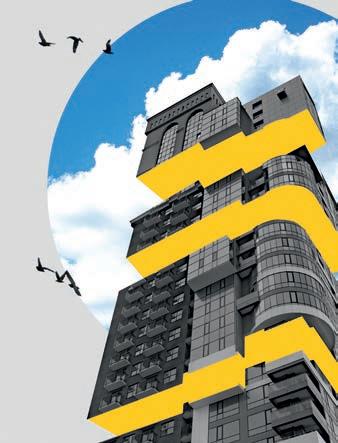

14 Opinion
Expert Analysis by Eric Stewart on Defense, Energy, and Economic Ties Edited by Jerry Kamecki
18
Sanjay Samaddar, Chairman of the Board of ArcelorMittal Poland
28
Jerzy Tymofiejew, CEO of Rex Concepts
32
Tom McGrath, Principal of BSW
Early Signs of a Rebound in Real Estate
Poland’s economic resilience: growth, inflation challenges persist Tossing the Political Football Shoring up Investments from the Baltic to the Tatra mountains
43
Interview: Vastint’s Project Manager, Janusz Tybuszewski
Interview: Béranger Dumont, General Manager of BPI Real Estate Poland
Orkana Apartments Redefine Modern Living in Warsaw
CEEQA: Garry Kasparov on AI


As I reflect on 2024, I can't help but feel a mix of pride and optimism for what Poland has achieved as a country. It has been a year of navigating challenges and celebrating small but significant victories. The numbers speak for themselves: Poland’s GDP growth forecast was revised up to 3%, by the World Bank, a testament to the resilience of the economy and the determination of businesses and individuals alike.
Inflation—a stubborn companion from the past—was tamed from its peak of 18.4% in early 2023 to 6% by the end of 2024. While that’s a reason to cheer, the battle isn’t over yet. Wage pressures and fiscal tweaks in 2025 could stir it back up, so there’s no room for complacency.
And then there’s employment—what a remarkable story! At the close of 2024, Poland boasts the lowest unemployment rates in the EU. That’s something to be incredibly proud of. But let’s also acknowledge the flip side: a tight labor market. Employers have struggled to find workers, and businesses have leaned heavily on foreign talent to fill the gaps. It’s a reminder that success brings its own set of challenges.
Looking ahead, 2025 promises to be an exciting year. Investments are set to surge, powered by initiatives like the National Reconstruction Plan. The FDI pipeline remains robust, and Poland continues to be a magnet for global businesses seeking talent at scale and competitive costs. Autumn 2024 brought hints of a real estate revival, with office and retail spaces buzzing again—a promising sign of economic momentum.
But, let’s be honest: it’s not all rosy. The broader European landscape, especially in key partners like Germany and France, poses uncertainties. Can Poland weather the storm yet again? Based on everything I’ve seen this year—our strong exports, innovative spirit, and resilient domestic consumption—I believe we can. And the OECD seems to agree: Poland is projected to lead the growth charts among large economies in 2025.
So, as we bid farewell to 2024, I feel nothing but gratitude and hope. Let’s keep building, innovating, and thriving together in the year ahead.
Here’s to a vibrant and prosperous 2025!
MORTEN LINDHOLM
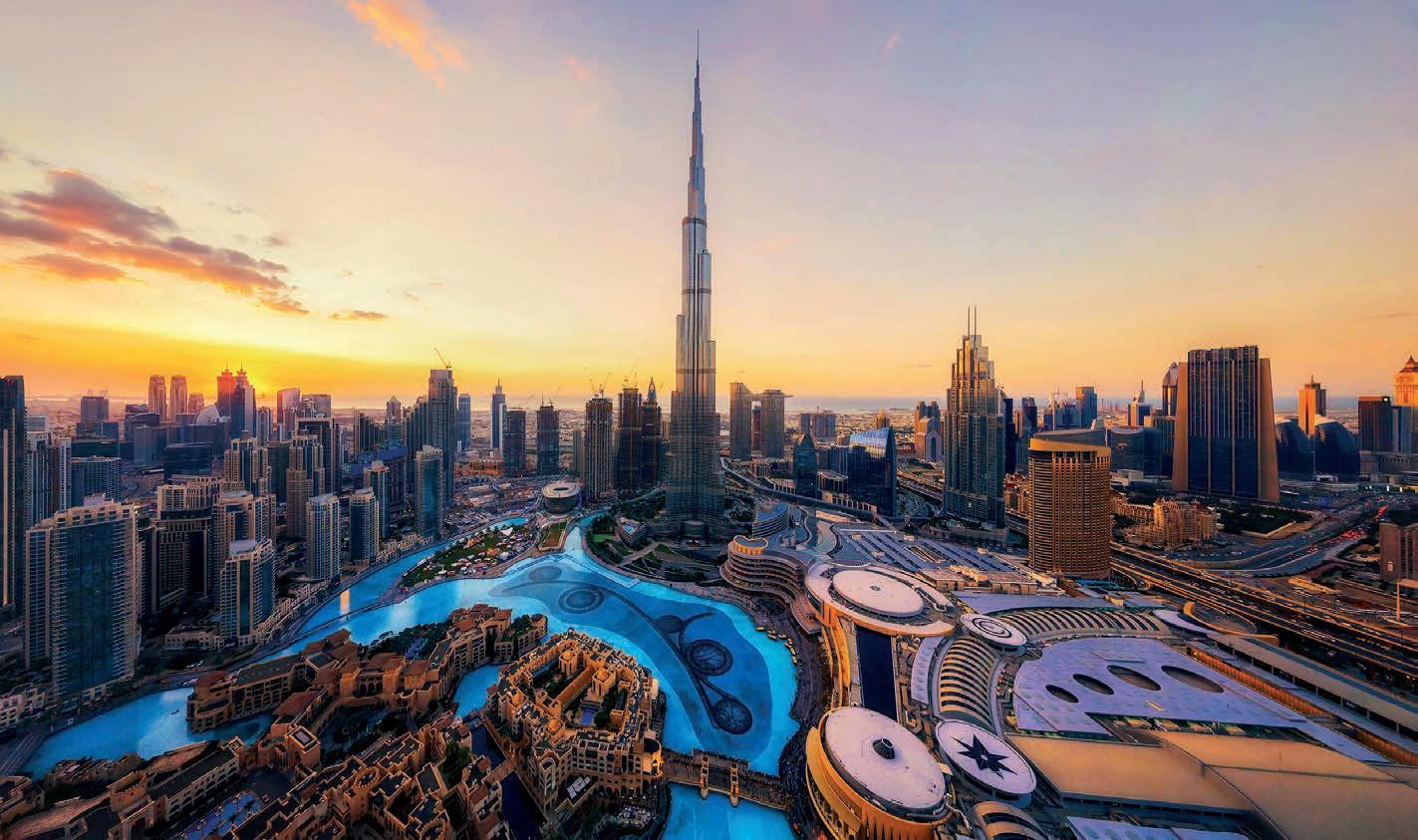


Janusz Tybuszewski, a Project Manager at Vastint since 2006, holds a Master’s in Architecture from Gdańsk University of Technology. With a construction license earned in 2001, he previously worked at Horus on public and residential designs. His diverse experience includes real estate brokerage and earlier roles with Celebrity Cruises and Crystal Cruises, reflecting his passion for maritime travel. Known for his expertise in investment projects, Janusz brings a broad skill set and dedication to his work in architecture and development.
Interview on page 46
Tom McGrath has over 25 years of experience in international education with successful headships in Poland, Portugal and the Caribbean. A graduate of University of Limerick and Trinity College Dublin, he has also completed advanced studies in Applied Linguistics, International Education and International Relations. He joined BSW in 2017 as Principal.
Interview on page 32
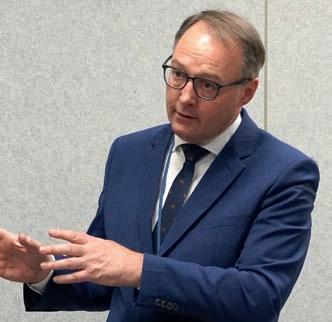
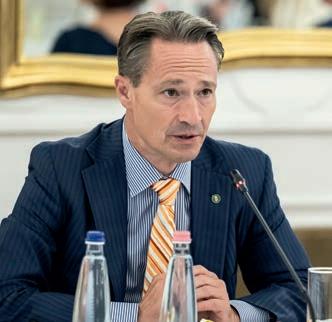
Mr. Stewart served as U.S. Deputy Assistant Secretary for Europe/Eurasia at the Department of Commerce (2001–2006) under President Bush, overseeing trade and investment policies for over 50 countries. He received the Officer's Cross of the Order of Merit (Hungary, 2006) and the Knights Cross of the Order of Merit (Poland, 2012) for his contributions to economic relations. Currently CEO & Founder of the American-Central European Business Association (ACEBA), Mr. Stewart is a sought-after expert on international economic policy and a frequent media commentator.
Article on page 14
Morten Lindholm
Editor-in-Chief/Publisher mlindholm@valkea.com
Kevin Demaria Art Director kdemaria@valkea.com
Editor Sean Reynaud
Contributors Beata Socha
Jerry Kamecki
Sales Katarzyna Pomierna kpomierna@valkea.com
Print & Distribution
Krzysztof Wiliński dystrybucja@valkea.com
Event Director, Valkea Events Magda Gajewska mgajewska@valkea.com
Contact: phone: +48 22 257 75 00 fax: +48 22 257 75 99
e-mail: wbj@wbj.pl WBJ.pl For enquiries,subscriptions-related please email us at wbj@wbj.pl WarsawBusinessJournal @wbjpl
All photographs used in this issue are courtesy of partners and companies unless specified otherwise. Copyright © 2024 by Valkea Media SA All rights reserved. This publication or any portion thereof may not be reproduced or used in any manner whatsoever without the express written permission of the publisher.
Published by ul. Jerzego Ficowskiego 15 Valkea Media S.A.01-747 Warszawa Tomasz Opiela, CEO NIP: 525-21-77-350 www.valkea.com

To subscribe through RUCH SA: www.prenumerata.ruch.com.pl, prenumerata@ruch.com.pl, 801 800 803



Warsaw Mayor Rafał Trzaskowski has officially been named the Civic Coalition candidate for Poland's 2024 presidential election. Despite mounting questions, Trzaskowski plans to continue his duties as mayor during the campaign, launching his preelection activities on December 7. Should he win, Deputy Mayor Renata Kaznowska will assume leadership of City Hall until early elections are called. Critics have scrutinized his dual roles, but Trzaskowski insists on maintaining focus on Warsaw’s key projects while preparing for the national race.

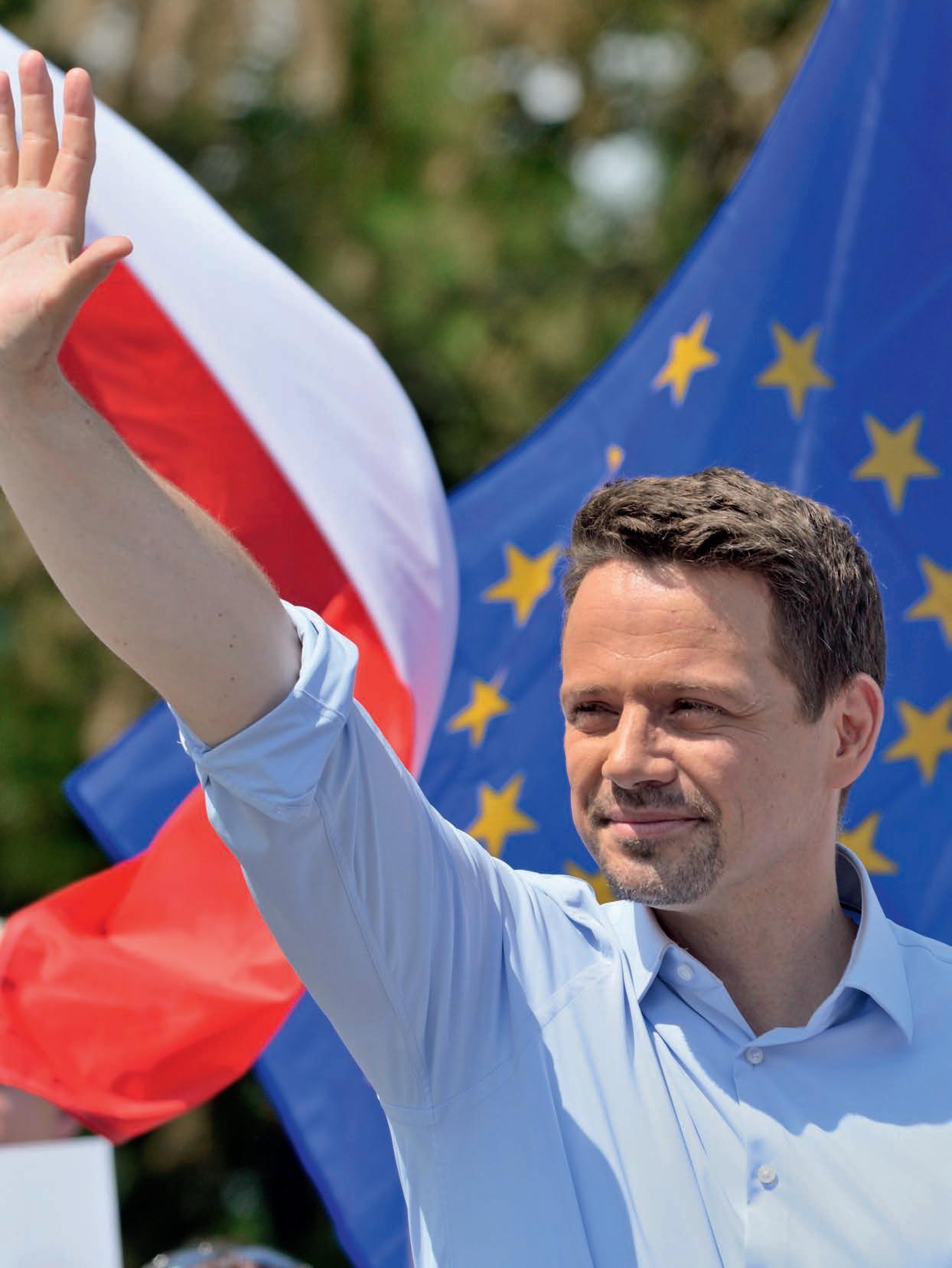
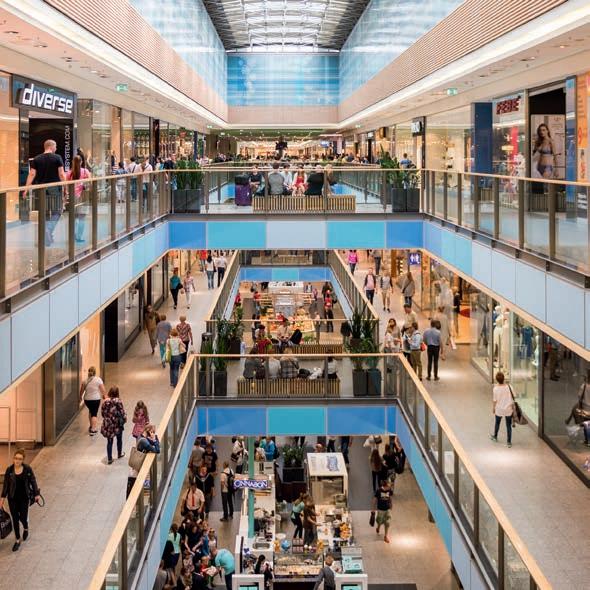
This year, Polish retailers are launching Christmas promotions earlier to offset reduced consumer spending. Starting holiday sales shortly after November 1 allows retailers to spread holiday spending and maximize revenue, following trends in the UK and US. Early promotions include not only Christmas-specific items but also gift categories like toys, home goods, and food. Economic challenges, like low demand and inflation, push businesses to attract cautious shoppers who value budget management and good deals. Urszula Kłosiewicz-Górecka of the Polish Economic Institute notes that festive store displays and discounts can prompt impulsive purchases. However, with inflation limiting purchasing power, consumers may be more selective, seeking true value rather than succumbing to premature holiday offers.
Poles understand Clean Transport Zones, but 40% do not want them
Only 14% of Poles are aware of Clean Transport Zones (SCT) and understand how they function, despite Warsaw implementing one in July. A survey by Ariadna shows 29% have not heard of SCTs, and 28% know little about them. While 53% support SCTs, 47%
oppose, with opponents viewing SCTs as financially exclusive or restrictive to individual freedom. Supporters cite environmental benefits and public health. More stringent measures, like banning all but electric vehicles, have limited support (13%), while 36% believe SCTs should not be implemented at all. Awareness is higher among active drivers and varies by region, signaling a need for better public outreach.
Fitch Ratings confirmed Poland’s longterm foreign currency rating at “A-” with a stable outlook, citing a diversified economy and EU membership as strengths. However, high deficits, lower income levels, and weaker governance indicators are concerns. Risks to Poland's rating include challenges in public finance consolidation and slower growth prospects. Positive rating adjustments could stem from fiscal improvements, reduced political polarization, and sustained GDP growth.
Fitch projects Poland’s deficit to increase to 6.2% of GDP in 2024, above the “A” category median of 2.9%, with public debt reaching 61.4% of GDP by 2026. Relations with the EU have improved, yet political divides pose potential fiscal risks. GDP growth is forecast at 3.0% in 2024.
The European Commission has approved Poland’s second and third payment requests under the National Recovery Plan (KPO), totaling PLN 40 billion. This record transfer includes PLN 17.5 billion in grants and PLN 22.6 billion in loans. According to Minister Katarzyna Pełczyńska-Nałęcz, Poland will submit two additional requests in late 2024.
The funds will support extensive projects: PLN 10 billion for offshore wind farms, PLN 7.4 billion for railway upgrades, and PLN 4.7 billion for healthcare. Additional investments include home insulation, bus upgrades, and high-speed internet.
Poland’s revised Recovery Plan now comprises 57 investments and 54 reforms, focused on climate (44.96%) and digital transformation (21.28%). Poland is set to receive a total of EUR 59.8 billion from the KPO.


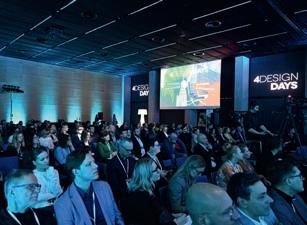

Prime Minister Donald Tusk criticized some EU CO2 emission reduction policies, saying they "disarm the European economy." He noted that similar concerns were shared by EU leaders at a recent summit in Budapest. Tusk highlighted that Europe’s energy costs are about 2.5 times higher than in the U.S., with Poland facing particularly high prices. He questioned Europe’s competitiveness under such conditions, suggesting it is unrealistic to maintain.
Tusk pointed to the EU's exclusive focus on “green” hydrogen, which is zero-emission, and expressed a need for a more balanced approach that includes cleaner, though not entirely emission-free, hydrogen sources to ensure affordable energy and economic competitiveness.
The office space market in Poland showed notable regional differences in Q3 2024, with a total supply of 14.4 million sq m. Warsaw continues to dominate with over 50% of the market share, but cities like Wrocław, Kraków, and Tricity are seeing growth. Wrocław delivered the most new space (26.6 thousand sq
m), while Gdynia completed two buildings totaling 14.5 thousand sq m.
The vacancy rate is stable at 12.86%, with the highest in Łódź (21.4%) and Katowice (16.7%), while Warsaw and Tricity have the lowest rates. Average asking rents rose to €13.84/sq m, with class A buildings nearing €15/sq m. Flexibility in leasing and an increase in coworking spaces are becoming more prevalent as tenant demands evolve.
The market showed signs of recovery, with a slight decrease in time to rent office space.
Poland's Independence Day on November 11 commemorates its 1918 liberation after 123 years of foreign rule. This day also prompts reflection on defense challenges, prompting heavy military investment. Since December 2023, the new Defense Ministry has committed to upholding prior military contracts and adding 150 more by the end of 2024. Polish and foreign defense firms benefit, though critics highlight inefficiencies.
Defense spending reached a record 3.1% of GDP in 2024 and is set to rise to 4.7% in 2025, leading NATO countries. Deputy PM Kosiniak-Kamysz asserts these funds ensure security and address previous gaps, particularly in training, infrastructure, and modern
equipment acquisition.
PGE launches Poland’s largest, and one of Europe’s most advanced, gas power plants
PGE Polska Grupa Energetyczna has officially commissioned Poland's largest and one of Europe’s most modern gas power plants. The 1,366 MW gross capacity unit is located in Gryfino, in the West Pomeranian region. It will supply 1.4 GW to the grid, covering approximately 5 percent of the national electricity demand and powering around 3 million households. According to the Ministry of Climate and Environment, this is a critical investment for national security and a tangible sign that the energy transition is underway.
“This is the most advanced gassteam power plant in Poland and one of the most modern in Europe, stabilizing the energy system amid a growing share of renewable sources,” Dariusz Marzec, CEO of PGE Polska Grupa Energetyczna, said.
PGE Gryfino Dolna Odra includes two gas-steam units, each with a gross capacity of 683 MW, replacing outdated coal units at the Dolna Odra Power Plant. The new plant’s capacity is under a 17-year capacity market contract starting in 2024.
QUOTE: Dariusz Marzec
CEO
of PGE Polska Grupa Energetyczna
“This is the most advanced gas-steam power plant in Poland and one of the most modern in Europe, stabilizing the energy system amid a growing share of renewable sources”

Energy Costs
13% higher
Energy costs for Polish businesses above the EU average 20%
Energy costs for Polish businesses below the EU average a decade ago
2%
How much of company revenues spent on energy expenses

3%
Real GDP growth is forecast for 2024, with Poland maintaining a strong economic position within Central and Eastern Europe
38.7 million
Poland’s population at a slight decline from 2023. This reflects ongoing demographic shifts, including emigration and low birth rates (stat.gov)
767,100
Registered unemployed people at the end of October 2024 (Minister of Family and Social Policy)
77,700
Job vacancies reported by the Ministry of Labor and Social Policy, in October
53,300
Job vacancies at the end of October
-0.5% y/y
Employment in the enterprise sector

70%
Percentage of Polish employees that earn less than the national average (GUS)
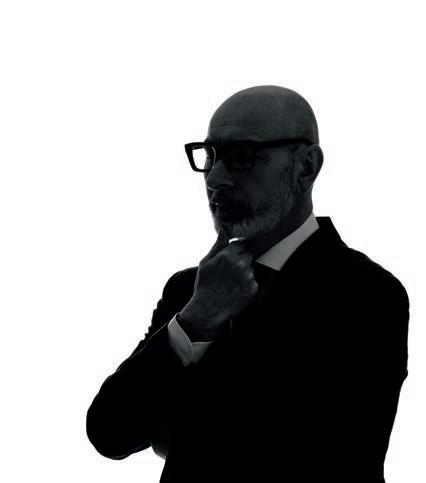
Average gross salary in Q3
PLN
8,161.62 from 8038.41 PLN/Month in the second quarter of 2024 (GUS)
279 cryptocurrency ATMs are installed in Poland, making it the 2nd highest in Europe, after Spain with 313. Other countries with significant installations include El Salvador (215), Germany (177), and Hong Kong (169). (Coin ATM Radar)
EDITED BY JERRY KAMECKI
in the wake of Donald Trump's electoral victory, Poland's position as a crucial NATO ally and European security cornerstone takes on renewed significance. Eric Stewart, president of the American-Central European Business Association (ACEBA), provides insights into the anticipated shifts in U.S.-Polish relations across multiple domains.

With Britain's exit from the European Union, Poland has emerged as a potential primary interlocutor for America in Europe. Despite Trump's previously strained relations with France and Germany, his first term saw strengthened U.S.-Polish cooperation, notably through Poland's inclusion in the Visa Waiver Program. "Poland should be a high priority for Trump," Stewart emphasizes, citing the country's pivotal role in Ukraine, energy security, and EU politics. The cooperation between President Duda and Prime Minister Tusk will be crucial for advancing shared interests.
Poland has established itself as Europe's security leader, with defense spending at 4.7% of GDP—well above NATO's 2% requirement. "Poland is protecting Europe with the largest military in the region," Stewart notes. The presence of 10,000 U.S. troops in Poland underscores this strategic partnership. New challenges, including Russian technology transfers to North Korea, further elevate Poland's NATO significance.

Republican pressure to reduce Ukraine aid could increase responsibilities for European allies, particularly Poland. "Poland has done more for Ukraine than any other European nation," Stewart observes. Trump's pledge to swiftly end the conflict might involve Poland in peace negotiations, especially given its substantial role in supporting Ukraine.
Poland's successful diversification from Russian energy has transformed it into a regional energy hub. Significant U.S.-Polish cooperation continues through initiatives like Warsaw's Clean Energy Training Center and the Westinghouse nuclear project. "Both countries are leaders in the green energy transition," Stewart notes, anticipating sustained collaboration under Trump.
President Donald Trump speaks to a crowd at Krasinski Square in Warsaw, Poland, on July 6, 2017, with the Warsaw Uprising Monument serving as a poignant backdrop.
what Trump will do—except Trump," Stewart suggests Poland's business-friendly environment could provide protection against potential tariff measures. The country's position as an innovationfriendly economy within the EU makes it particularly attractive for U.S. investment.
Poland's military modernization, supported by American financing, has strengthened its defense capabilities significantly. "For now, Poland relies on U.S. technology, but it's developing its own solutions," Stewart explains, suggesting future cooperation may emphasize private-sector partnerships.
While Trump's non-interventionist approach suggests minimal U.S. involvement in Polish domestic affairs, Vice President-elect Vance may address concerns about media freedom and judicial independence. However, Stewart predicts these discussions will remain informal rather than becoming official policy positions.
The country's position as an innovationfriendly economy within the EU makes it particularly attractive for U.S. investment
Trump's transactional approach to international trade introduces uncertainty. While "Nobody knows
Trump's role in facilitating Poland's 2019 entry into the Visa Waiver Program remains a point of pride, reflecting strong Polish-American ties. High visa approval rates for Polish citizens are expected to continue under his administration.
With $174 billion already provided to Ukraine, potential Republican-led funding reductions could indirectly impact Poland. However, Stewart suggests that Poland's steadfast support for Ukraine reinforces its position as an indispensable U.S. ally. Trump's focus on swift conflict resolution may involve Poland in ensuring favorable terms for Ukraine.

This year, the cycle of Belgian Days was opened by the first edition of the “Transport & Industry Seminar”. The meeting focused on the key challenges that the manufacturing, logistics, and transportation sectors will face in the coming years. It was an excellent opportunity for leading Belgian companies such as Port of Antwerp-Bruges, Smulders Projects Poland, Cyclops Poland, Phronesyss, and BZEN to exchange experiences and discuss innovative, sustainable and intermodal solutions. The event featured two panel discussions centered around effective production practices and the future of European transport. The substantive part of the seminar concluded with a presentation by PwC Polska regarding investment incentives available to foreign investors.
Among key issues, panellists discussed the importance of developing sustainable yet competitive production practices in order to guarantee the competitiveness of European companies. On the other hand, the second panel gave insights into the successful implementation of intermodal solutions and dived into the challenges of further expanding road and maritime connections across the continent.
Guests were encouraged to share their experiences and take part in the discussion surrounding the future of their industries.
The Belgian Days are the flagship project organised annually by the Belgian Business Chamber (BBC) in Warsaw, aimed at building bridges and celebrating the existing ties between the Polish and the Belgian business communities as well as supporting the creation of valuable partnerships among its members.
This year, the 26th edition of Belgian Days took place from November 12 to 15, 2024. Over three intense days, six diverse events were organised, focusing on key industries where Belgian companies are strongly represented, providing all participants with market insights and collaboration opportunities.
Discover all the pictures from the 2024 edition!
A Belgian night dedicated to jazz
The second event of the Belgian Days – the "Midnight” Concerts, which combined the world of music with networking took place at the trendy foodcourt Hala Koszyki. The evening was enhanced by a performance from the saxophone quartet “441”, which flew in straight from Brussels for the event and took guests on a pleasant journey through the history of jazz. The concert was organized with the support of the Julian Cochran Foundation and hub.brussels.

Transport
‘Organizing events such as the “Transport & Industry Seminar” as part of Belgian Days is crucial for the industry and the integration of the Belgian business community in Poland. It is a unique space for the exchange of knowledge and experiences, the presentation of innovative solutions, and a joint analysis of the challenges and opportunities brought by dynamic market changes. It enables the establishment of valuablevbusinessvrelationshipsvthatvcanvtranslatevintovstrategic partnerships.vSuchvmeetingsvbuildvbridgesvbetweenvcompanies, supportingveconomicvdevelopment,vmutualvunderstanding,vand innovation in key sectors such as transport and industry.’
On Wednesday morning, the flagship Real Estate Conference took place, serving as the annual platform for sharing knowledge and experiences among representatives of the Polish-Belgian real estate market. Moreover, participants had the opportunity to establish valuable connections with the PropTech delegation (dedicated to the digital transformation of the real estate sector) consisting of ten companies that arrived from Brussels with the aim of building relationships with Polish partners. The program was rich in inspiring panel discussions that delved into the most pressing challenges awaiting the market. Among these, issues related to the housing units shortage and high market prices were highlighted, as well as the perspectives of the evolving situation in Ukraine and matters regarding the green transition of the sector.

Belgian Business Mixer, November 2024
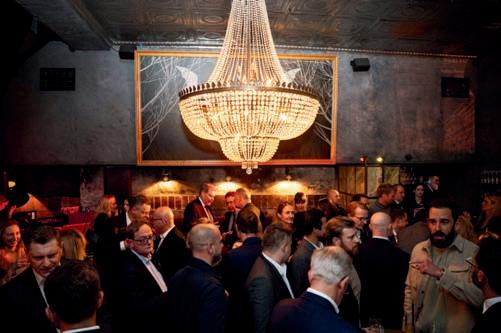
In the evening, the Chamber had the pleasure to host over 100 participants during the "Belgian Business Mixer", which took place at the Weles bar. It was the perfect occasion to establish new business connections in a relaxed atmosphere while enjoying typical Belgian delicacies such as mossels, beers and exquisite chocolates. During the event, the BBC also held a charity raffle, with all proceeds going to support the Lapigua Foundation. In this way, participants not only had the opportunity to forge business relations but also contributed to a noble cause by supporting refugees from Ukraine.
Belgian innovation meets fintech
On Thursday morning, the "FinTech & Innovation Summit" took place, aimed at highlighting the dynamic presence of Belgian companies in the Polish financial sector. The event kicked off with an inspiring presentation by Euroclear, which serves as the financial market infrastructure supporting various types of securities, including bonds, stocks, and investment funds. Following that, BNP Paribas discussed several examples of innovative startups that it has supported in their development and expansion.




The final workshop, organized by CRIDO, addressed key issues regarding tax incentives, enabling entrepreneurs to take advantage of available opportunities. Participants then engaged in an interesting panel discussion featuring candidates for the Belgian Business Chamber Award 2024.
Gala at the top
The Belgian Days culminated in the annual CEO Forum at the iconic Villa Foksal. The event brought together leaders from prominent Belgian companies active in Poland. Among the distinguished guests was Konrad Wojnarowski, Undersecretary of State at the Ministry of Funds and Regional Policy who established a dialogue with Belgian investors. During the gala, the winners of the prestigious BBC Awards - Ghelamco Poland, Bopro Poland and Bionest - were also announced.
‘For 26 years, the Belgian Days have been a household name in the entrepreneurial world in Poland. Year on year, fantastic activities are organised to further inform and guide every entrepreneur involved in trade relations between Poland and Belgium. To give just one example, I can refer to the annual Real Estate Conference.
The pinnacle, however, is the CEO Forum which brings together Belgian and Polish CEOs in an informal way every year. Truly the top is present there. Cottyn Lawyers is therefore very proud to have been able to support this important event for many years now and to have built up a lot of contacts as a result.
As far as we are concerned, we will continue to support the CEO Forum.’
- Marc Cottyn, Partner at Cottyn Lawyers







Sanjay Samaddar, Chairman of the Board of ArcelorMittal Poland, reflects on 20 years of growth and innovation. Under his leadership, the company has prioritized decarbonization, technological advancements, and employee development, solidifying its role as a key player in Poland's economy and steel industry transformation.
WBJ: Nineteen years at the same company is a long time. You could say that you know ArcelorMittal Poland inside out, and this year the company celebrates 20 years in the Polish market. It seems that you have accompanied the company on this long journey from the very beginning. How do you remember it?
Sanjay Samaddar: Indeed, I have had the honor and privilege to be associated with ArcelorMittal Poland, in a leadership role, for 19 of these glorious 20 years, which we are celebrating this year. Looking back on those two decades evokes fatherly feelings in me. I am a father of two but I feel, and I know, that this company is my third child, one that has also grown into adulthood.
Over the last two decades, we have put a lot of effort and commitment into maintaining and developing the steel industry in Poland, far exceeding the commitments of the privatization agreement and continuing investments despite crises, market volatility, and aggressive imports from third countries. We have already invested over PLN 10.5 billion in our six facilities, reduced CO2 emissions by 42 percent, dust emissions by 90 percent, and energy consumption by 40 percent. Safety continues to be our top priority. We have reduced the lost time injury frequency rate fourfold since 2004.
According to the latest report from the Warsaw School of Economics, last year ArcelorMittal was the second largest foreign investor in Poland. This is the best evidence of the scale of our engagement. These achievements are especially significant as many steel companies in the CEE region are facing serious challenges, with questions surrounding their continued of operations.
Simply said, in one sentence, I will remember these two decades as a ferocious and successful effort to transform the steelmaking technology in Poland—something I am very proud of.
ArcelorMittal Poland is a leading steel producer in Poland, but not everyone knows what is produced in steel mills and processing plants, where these products can be found, or whether they are still necessary in our lives. With new technologies and AI coming to the forefront, young people are increasingly uncertain about the role and importance of steel. Steel is the fabric of life; it’s with us from dawn to dusk. Can you imagine your life without it? Imagine a kitchen without a cooker or a fridge. Imagine staying in touch with your loved ones without a mobile phone or getting to them without proper transport—bikes, cars, trams, buses, trains. Imagine… The modern economy also depends on steel. Steelmaking creates jobs not only directly in production—each job in steel generates six jobs in related industries. It’s a driving force in Polish industry: every million zlotys generated in the steel sector produces nearly six million zlotys across the economy. Our strategic business partners are some of the strongest pillars of the Polish economy, including JSW, PKP Cargo, Orlen, and Tauron, just to name a few. It is an honor for us to cooperate with such important players in the Polish market. We believe,
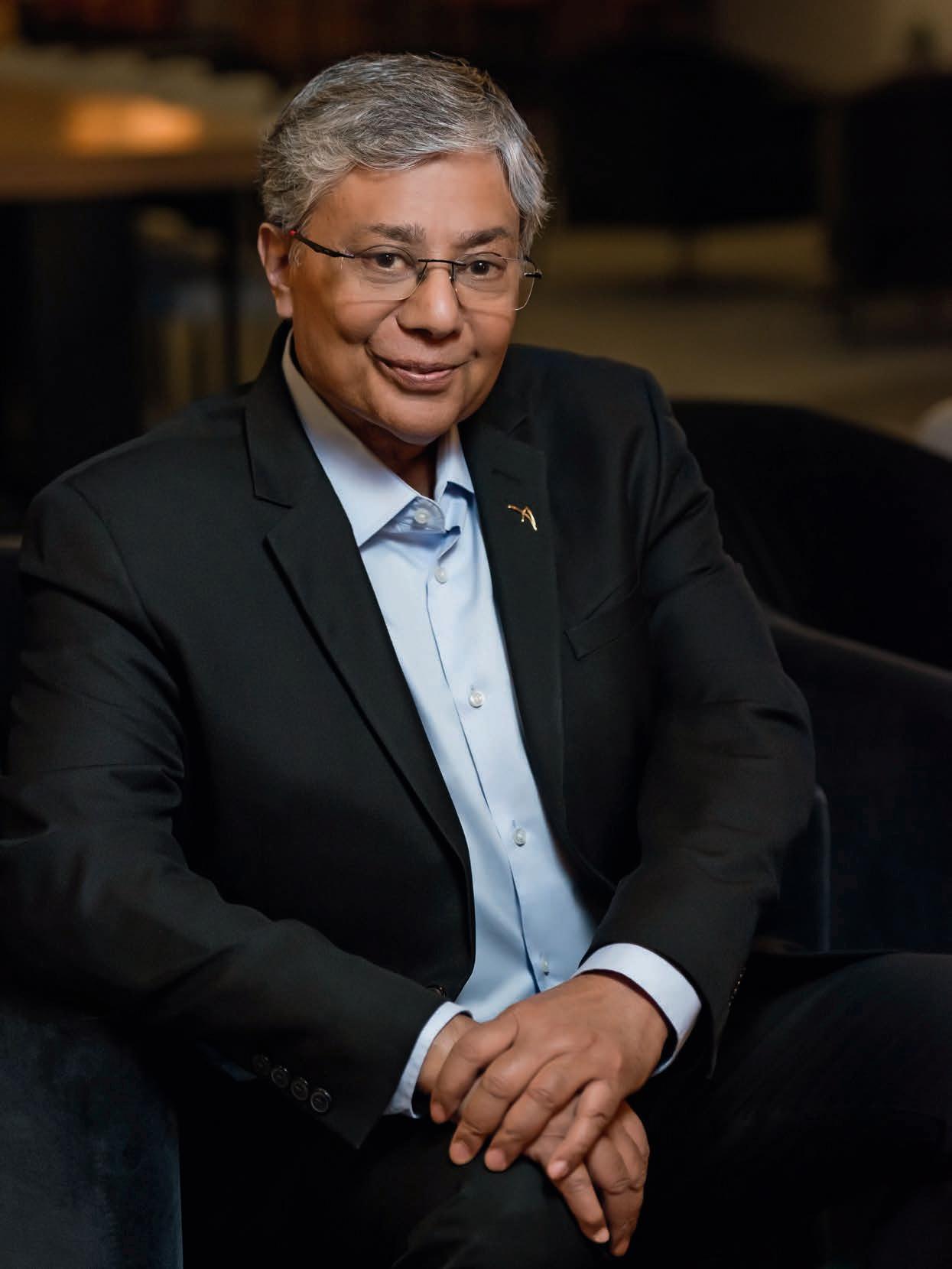
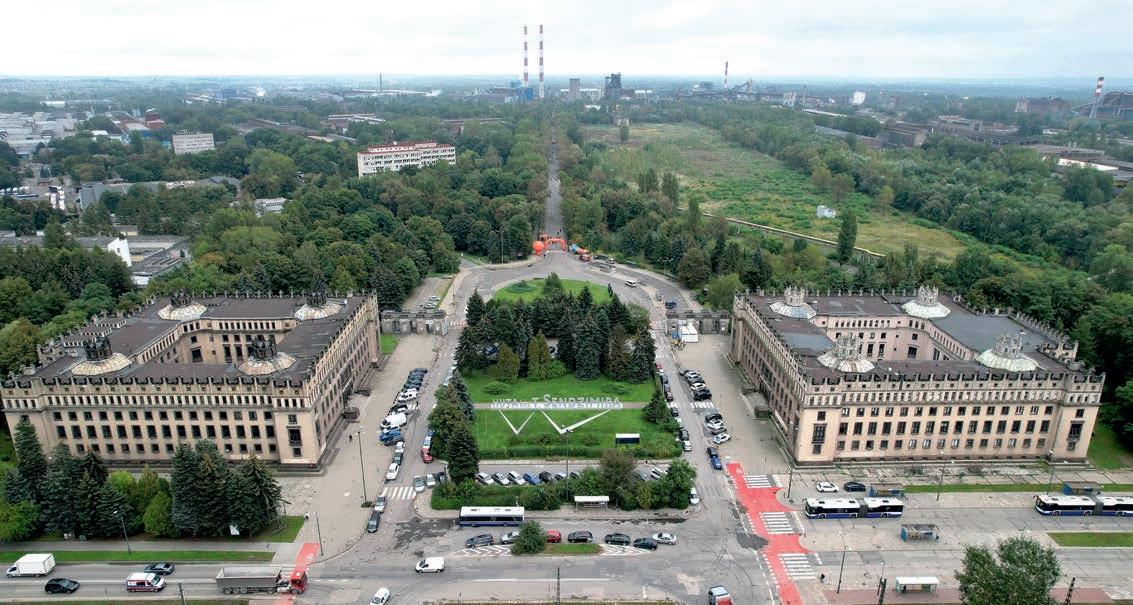
9,000 employees and another 2,000 in cooperating companies
Investments worth PLN 10.5 billion
Almost 100 million tonnes of steel in 20 years
90 million tonnes of coke in 20 years
Dust emissions reduced by 90 percent
CO2 emissions lower by 42 percent
Energy consumption lower by 40 percent (compared to 2004)
Support for over 1,000 community initiatives worth PLN 24 million
Two company-operated kindergartens
Preparing for decarbonization by 2050
our combined partnership and continued response to market needs translates into economic growth and puts wind in the sails of the entire country.
Steel is everywhere around us, yet few people realize that it is a key material and the foundation in many sectors—not only in the past, but also today and into the future. Importantly, steelmaking is no longer just mechanical work. Modern metallurgy must go hand in hand with new technologies. ArcelorMittal Poland constantly introduces innovative solutions in its plants based on automation, robotization and digital technologies, and uses big data, the Internet of Things (IOT) and artificial intelligence to optimize production processes. We implement Industry 4.0 technology to improve production processes, supply chains and, most importantly, increase occupational safety. We are constantly improving our processes and introducing devices that help us reduce the workload of employees and optimize production, like the MultiWrapper robot that packs cold-rolled, galvanized and organic coated coils in plants in Świętochłowice and Kraków, which allows us to wrap 20-ton steel sheet metal coils in just four minutes. We know that automation is one of the elements that increase the competitiveness of our company on the market, but we know also that we cannot forget that, regardless of the level of technical advancement and robotization, experience, competency, and the knowledge of our employees remain an extremely important factor determining the success of our company.
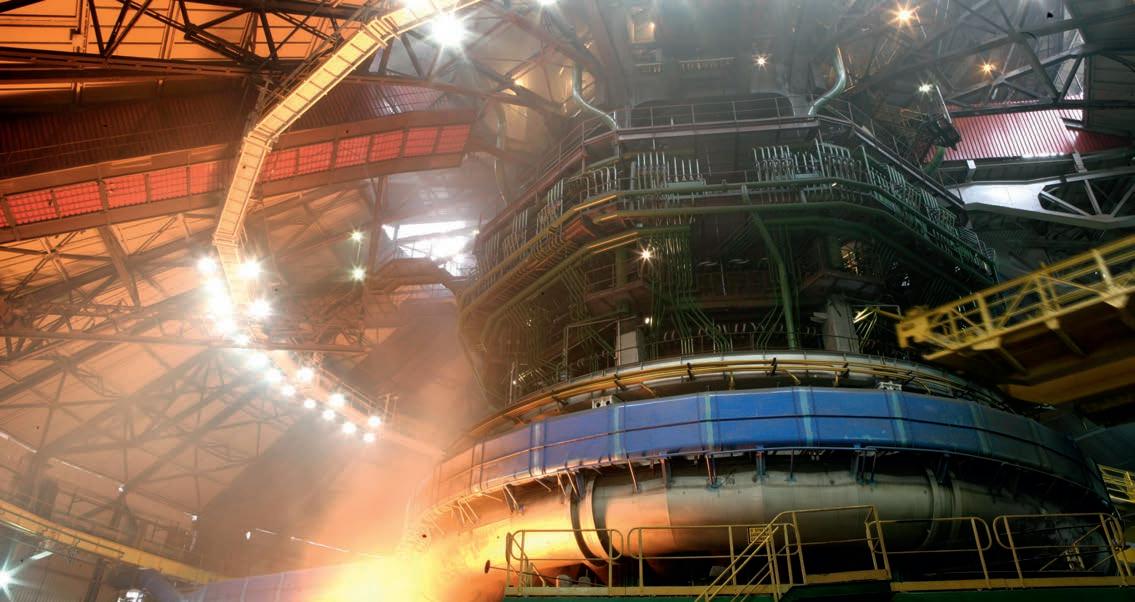
In summary, I would say that the modern steel industry—which we are in Poland— provides young achievers the excitement of working with cutting-edge technology across a vast range of applications. However, the very fact that you ask this question, is an inspiration for me to work harder to reach out to the new generation to encourage them not to miss this opportunity!

Right, employees. Is it easy to find good employees in such a demanding profession as steel production and processing? Are you lucky to have such a good team?
When ArcelorMittal entered the Polish market in 2004, we knew that the steel plants located in the south of our country were blessed with a local supply of coal from Poland’s rich mining heritage and nearby sources of iron ore—making our plants in Silesia ideally situated for efficient steel production. We discovered very quickly that here, in Poland, steel can be found not only in the steel plants, but also in the character of its people. At our plants, among our more than 9,000 employees, we have many families: sons and daughters working alongside their fathers and mothers, and grandchildren continuing the traditions of their
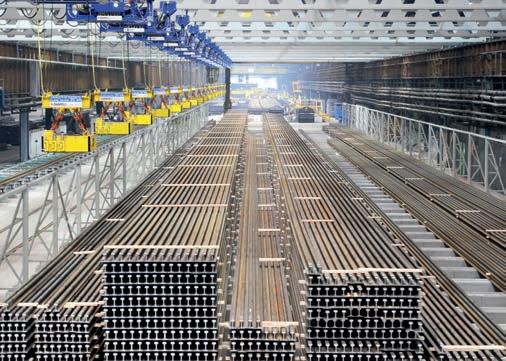


grandparents. Steelmaking is more than just a job. What lies at the heart of our operations is the belief in the meaningfulness of our work. I am sincerely proud of the fact that our teams are not only committed to steel, but also genuinely passionate about it!
The steel industry, like many other segments, is changing, striving to decarbonize and automate processes. That is why continuous improvement and training are so important. At ArcelorMittal Poland, this aspect is very important, we focus on ongoing development and re-skilling of our employees. We offer our employees not only the opportunity for personal development and skill enhancement, but also a wide package of benefits, such as company kindergartens, medical care, a rich social fund, and an employee pension program.
We strive to ensure that our employees continue with us for years, that they want to work with us, that they feel good here. We value their knowledge, experience, intelligence and dedication—qualities that are rare and invaluable today, which is why they are so important to us. This is a fact: we would not be where we are today without the commitment of our more than 9,000 employees, the loyalty of our customers or the openness of our suppliers and authorities—both at the local and national level— as well as cooperation with our social partners, who have always supported our long-term vision for the company.
As a closing remark on this topic, and you may be surprised to hear this from me: we do not need to “find” good employees, because we have plenty of them, and most of them stay with us until retirement! Our mission is to ensure that we do not lose these passionate and skilled people who we are very fortunate to have with us.
You mentioned the challenges of decarbonization. For the steel industry, this is a huge undertaking. How do you plan to achieve it?
The ArcelorMittal Group aims to achieve carbon neutrality by 2050. Decarbonization is a huge challenge for the steel industry across Europe. For it to be successful, several conditions must be met, including: access to large-scale, renewable energy at competitive prices. We know that the transformation will be a long-term process, so we are working intensively to limit our impact on the environment today, in our current processes.
Now we are implementing steps in addressing our asset base, technologies, and processes to meet our decarbonization targets. But transforming our steelmaking assets will not suffice, the energy used in the steelmaking processes will also need to undergo transformation. Steel can be produced via two routes: the
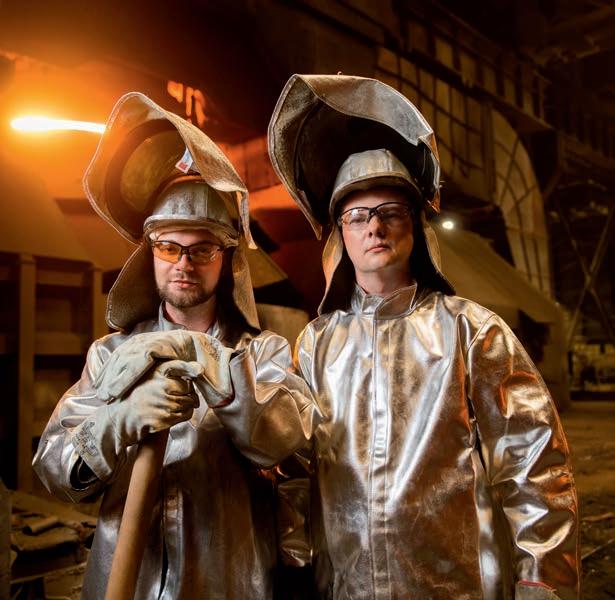

Chairman of the Board of Directors at ArcelorMittal Poland, Chief Executive Officer of ArcelorMittal Europe Long Products, Vice President of ArcelorMittal
Throughout his career at ArcelorMittal since 2003, Sanjay has held the positions of CEO, Chairman and Supervisory Board member of ArcelorMittal’s plants in Poland, Romania, Czech Republic and Germany.
traditional Blast furnace route, and the more modern Electric Arc Furnace (EAF) route. The former relies on the use of iron ore with coke as fuel. This route is far more carbon intensive than the EAF technology, which relies on the use of scrap and electricity at competitive prices. Perhaps the first step on the steel industry’s decarbonization journey will be the switch from the Blast furnace route to the EAF route. In the longer term, as industries advance towards climate neutrality, there will be a need for clean electricity and green hydrogen, which will be needed in large amounts. We will also need support at the national and European level, because this is a big challenge that cannot be met alone.
Steel must decarbonize, because it is the foundation for the decarbonization of other sectors. We are part of the solution for the utility companies—steel is applied in photovoltaic panels, transmission networks and wind turbines. In fact, steel and iron account for 90 per cent of a wind turbine’s weight.
My closing remark to your question on decarbonization is: we feel responsible for the change, and with appropriate support from governments and institutions, we want to be seen and remembered for being part of the solution!
Apart from leading mega scale steel operations, he has also headed HR, IT and shared services at ArcelorMittal Europe’s Flat Products division, with more than 40,000 employees in 7 European plants. Since January 2022, Sanjay has been the CEO of ArcelorMittal’s Long Products business in Europe –operations with over 10,000 employees. He is also a member of the Group Management Committee of ArcelorMittal.
Sanjay has been involved with ArcelorMittal Poland since 2005, holding the positions of CEO and Chairman of the Board. During his tenure, the company has invested PLN 10.5 bn in its assets, significantly reducing its environmental footprint. He has developed a strong bonding with the industrial and cultural landscape of Poland, which has won him numerous awards and recognitions.
Before joining ArcelorMittal, Sanjay spent 19 years in the aluminum industry in India in senior leadership positions involving assignments with Indian Aluminium Company, Hindalco and Vedanta, including the position of CEO of India Foils Limited.
Sanjay has lived in Krakow since 2005. He has a son and a daughter, who are pursuing higher education and working careers in the UK. His wife, a software engineer by profession, is engaged in several social and cultural activities in Krakow.
Marking ArcelorMittal’s 20TH anniversary in Poland, WBJ sits down with CEO Wojciech Koszuta to discuss the company’s forward-looking goals. Koszuta emphasizes steel’s essential role in sustainable development, from its high recyclability and low lifecycle impact to innovations advancing green transport and energy. In over two decades, ArcelorMittal Poland has achieved a 42% reduction in CO₂ emissions and is on track for net-zero by 2050.

Sustainable development is a megatrend today. How can steel contribute to it?
Without steel, there is no sustainability. I know, it sounds like bragging, but it's true. Steel is not just one product. There are more than 3,500 different grades of steel, about 75 percent of which were developed in the last 20 years. The average life cycle of steel products is about 40 years.
Once produced, steel can be reused many times. It’s also the most recycled material.
But the steel production process is associated with emissions. That's true. However, I want to emphasize that when considering the entire life cycle, steel products have a lower environmental impact when compared to alternatives such as aluminium. At ArcelorMittal Poland, we have made significant strides in reducing our environmental footprint, cutting CO₂ emissions by 42% and energy consumption by 41% over the past two decades. We are currently working on a decarbonization plan. At ArcelorMittal Group, we want to achieve net-zero emissions by 2050. Decarbonisation is a huge challenge, but steel is uniquely suited to support this effort, even helping other industries lower emissions.
How?
Take the automotive industry: ArcelorMittal's lighter steel grades are crucial for the automotive industry. Steel is also
pivotal in the energy transition, serving as a key material in constructing wind turbines, photovoltaic panels, and transmission infrastructure. We use our R&D and engineering expertise to develop the steel grades needed for new applications. Our products can help customers lower their carbon footprint. No other material can compare to steel in this respect.
Staying on the topic of transport, ArcelorMittal Poland’s rolling mill in Dąbrowa Górnicza is among an elite group of manufacturers capable of producing 120-meter-long rails. So, what makes it so special?
We all use rail transport, more or less. The development of public transport and transportation of materials will continue in the coming years, with an increasing emphasis on sustainable transport and reducing emissions. High-Speed rail is the future. Ten years ago, we started the production of a 120-meter rail, and since last year we’ve achieved thermal hardening of the rail head. Long rails significantly increase safety in rail transport. The hardened rail head is more resistant to wear. In Poland, plans are underway to increase train speeds to 350 km/h, demanding upgraded infrastructure. While faster travel benefits passengers, the ecological aspect is a key consideration. Thanks to ArcelorMittal’s extensive product portfolio, we are able to supply steel products for these projects.
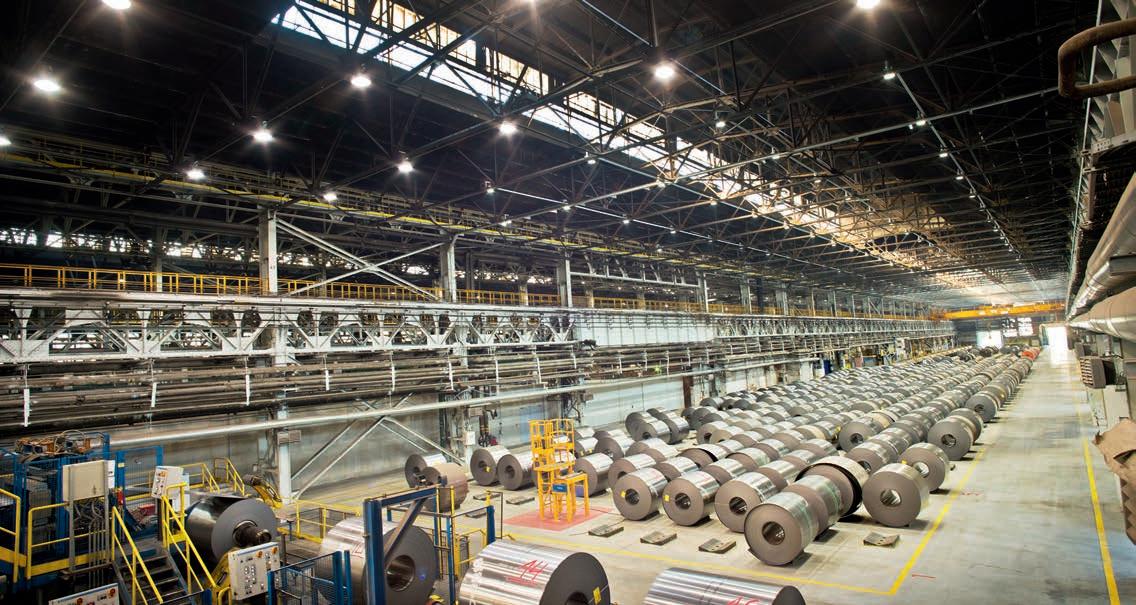
Wojciech Koszuta started his career in Huta Florian in 2001 (today one of the units of ArcelorMittal Poland) as a processing technology engineer.
In 2003, he joined Ispat Polska Stal (today ArcelorMittal Poland) as a production planning engineer and transitioned to Mittal Steel Poland in 2005 as the production planning office manager. He became the process engineering department manager at ArcelorMittal Poland in 2007 and has since held various positions at ArcelorMittal Poland's Polish sites. In 2017, he took up the role of Krakow cold rolling mill director. From 2020 to 2023 Wojciech served as COO of quality and flat products, with additional responsibilities for central maintenance, PMM, and the progress team from 2022. From 2023: Chief Executive Officer and Member of the Board of Directors of ArcelorMittal Poland.
Wojciech holds a degree in metallurgy and a postgraduate degree in material science from the Silesian University of Technology in Gliwice, Poland. He also completed a postgraduate program in business administration and marketing at the Karol Adamiecki University of Economics in Katowice, Poland.
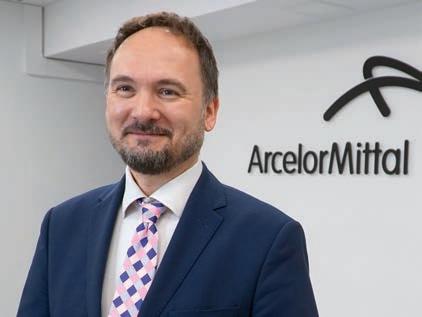
WOJCIECH KOSZUTA Chief
Executive Officer, Member of the Board of Directors at ArcelorMittal Poland
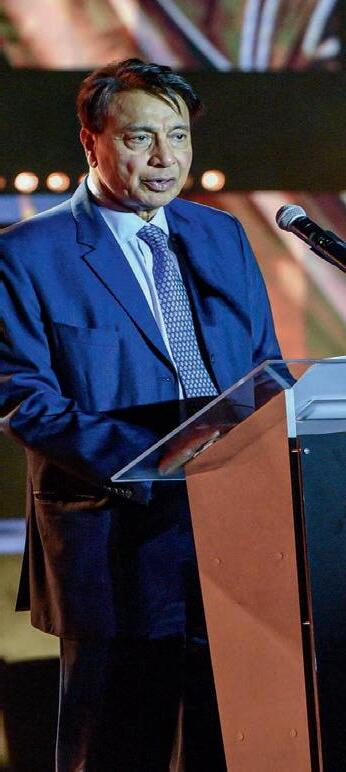
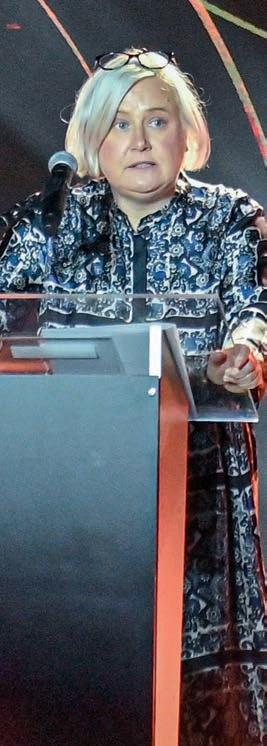
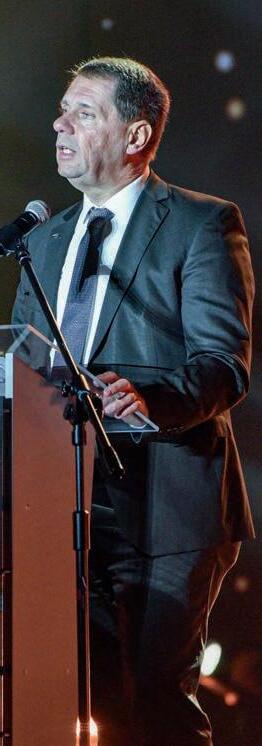
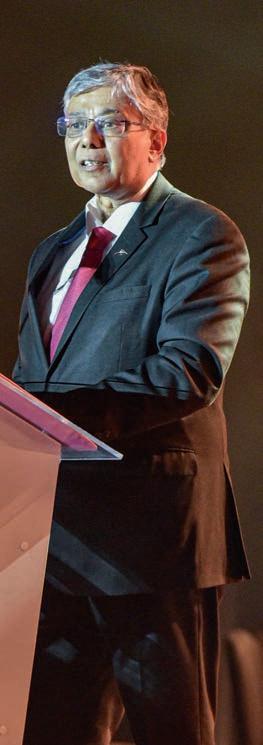
A dazzling gala marked two decades of innovation and dedication in Poland's steel industry, bringing together employees, stakeholders, and distinguished guests, including Lakshmi N. Mittal, to honor past achievements and look ahead to a bright future.

ArcelorMittal Poland marked its 20TH anniversary celebrating two decades of remarkable achievements and contributions to Poland's steel industry, with a gala for employees, customers, external stakeholders and former CEOs. The event was hosted by Sanjay Samaddar, chairman of ArcelorMittal Poland, and attended by distinguished guests, including, Lakshmi N. Mittal, executive chairman of ArcelorMittal, and Geert Van Poelvoorde, chief executive officer (CEO), ArcelorMittal Europe.
Special guests during the gala were also: Marzena Czarnecka, Minister of Industry, mayors of cities in which ArcelorMittal Poland operates, voivodes of Małopolska and Silesia, as well as numerous stakeholders: customers, suppliers, social organizations, trade unions with which the company cooperates.
During the gala, Mr Mittal expressed his pride in the company's achievements over the past two decades, "Overall, it has been a very successful 20 years. We have made a lot of investment—more than 10.5 billion złoty—to modernize and continuously transform the plants, ensuring that ArcelorMittal Poland remains at the forefront of steelmaking in the country. Still a crown jewel!"
He also took the opportunity to personally thank the colleagues at ArcelorMittal Poland, "I must thank and congratulate all of you for all your passion, commitment and hard work over these two decades. Your spirit and love for steelmaking endures, and this is what will underpin progress and success in the next decades."




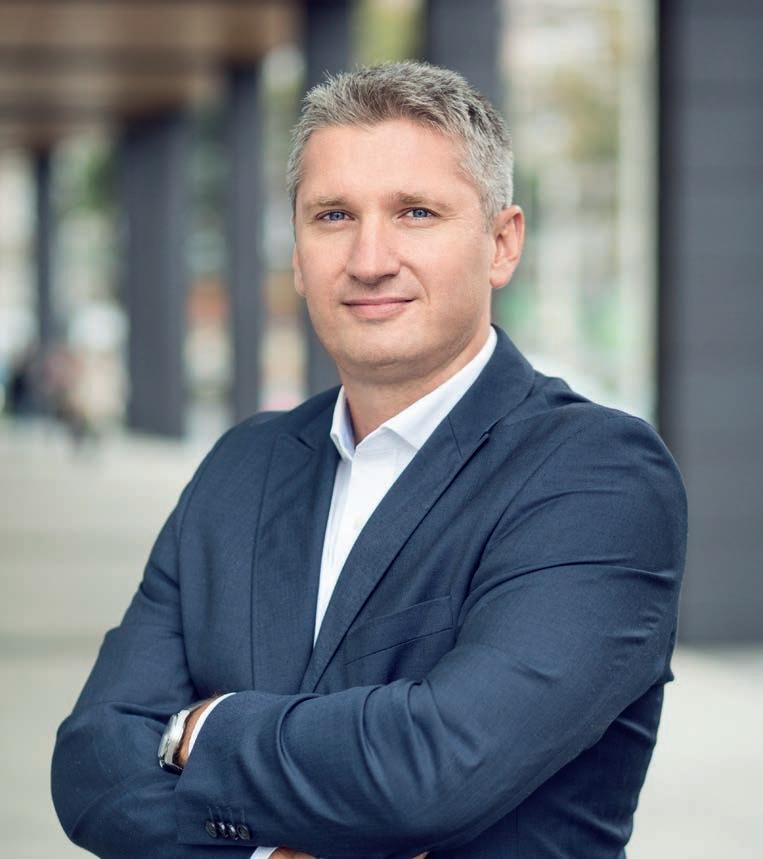
In the fast-paced world of fast food, one man is placing a bold bet: Jerzy Tymofiejew, CEO of Rex Concepts, is determined to make Burger King the crown jewel of Central and Eastern Europe’s (CEE) quick-service restaurant (QSR) scene. His goal? To dethrone the Big Mac and take on McDonald's dominance across Poland, Czechia, and Romania. BY JERZY KAMECKI
At the heart of Burger King’s strategy is its iconic Whopper, which Tymofiejew and his team have revamped to keep pace with changing customer preferences. "We’ve enhanced the recipe without losing what makes the Whopper special," said Magdalena Mamczur, CMO of Burger King CEE. "The beef is juicier, the bun fluffier, and the whole will be served at a higher temperature than in the past. Remember, we always use 100% beef with no preservatives or artificial additives."
But the challenge lies in balancing innovation with familiarity. "It’s tricky," Mamczur admitted. "We need to emphasize that the Whopper is still the classic people love, but better than ever. It’s about retaining that iconic status while improving the product in a meaningful way."
In an already crowded CEE market, McDonald’s Big Mac still reigns supreme as the go-to burger for many, but Rex Concepts believe the improved Whopper can tip the scales. "Taste is the number one factor driving QSR loyalty," Mamczur added. "If we get that right, we can take on the leader and win."
The 200-Restaurant Gamble
McWin, through its Rex Concepts CEE platform, has ambitious plans to open more than 200 new Burger King locations in Poland alone over the next decade, as part of a larger expansion strategy that includes Czechia and Romania. But Tymofiejew isn’t just playing catch-up with McDonald’s massive presence; he’s positioning Burger King to leapfrog its competitors by becoming the premium QSR option in the region.
Tymofiejew sees parallels with Lidl's success against Biedronka in the 2000s. “There's huge potential for a premium competitor in Central and Eastern Europe,” he says,” adding “with consistent brand work and market penetration, we believe we can reach McDonald’s scale, if not surpass it.”
Rex Concepts isn’t just relying on opening new locations to win the race. McWin’s investment will focus on modernizing the entire Burger King experience. Expect digital ordering systems, mobile apps, and enhanced delivery options that cater to a more tech-savvy and convenience-driven customer base. This modernization, combined with a strategic focus on sustainability, positions Burger King as more than just another fast-food chain—it’s an elevated experience.
“We’re focused on making Burger King the premium QSR option in CEE,” Tymofiejew explained.
Burger King’s marketing strategy will also play a crucial role in the battle for supremacy. According to Mamczur, the brand is leveraging limited-time offers (LTOs) and targeted digital marketing to appeal to both loyal customers and new audiences. "We introduce one LTO per quarter, and these are tied to real-time marketing strategies. For example, in the fall and winter, we introduce cheesy comfort foods that perform exceptionally well, especially in Czechia."
Through its mobile app, Burger King offers exclusive deals and promotions, making it a key tool in converting foot traffic into loyal customers. "We’ve found success in targeting customers near our restaurants with push notifications, offering them irresistible deals," said Mamczur.
Diversifying with Popeyes
But the plan doesn’t stop with Burger King. Rex Concepts also brought Popeyes to Poland, further diversifying its QSR offerings. With its signature fried chicken, Popeyes offers something different for Polish consumers who are looking for more variety in their fast-food options. This multi-brand approach is part of Tymofiejew’s broader vision to make Rex Concepts the leading QSR platform in CEE.
“ Taste is the number one factor driving QSR loyalty. If we get that right, we can take on the leader and win."
– Magdalena Mamczur, CMO of Burger King CEE

Can the Whopper Dethrone the Big Mac?
As Burger King rolls out its ambitious plans, the fast food landscape in Central and Eastern Europe is set for a shake-up. Will the Whopper claim the crown? Only time—and taste buds—will tell.
Tymofiejew’s final word on the matter? “We love challenges, and we’re ready for this one.”
With 4,000 stores worldwide, the Malaysian retail giant enters its 13th market, bringing affordable home improvement solutions to Zabrze and Krakow.
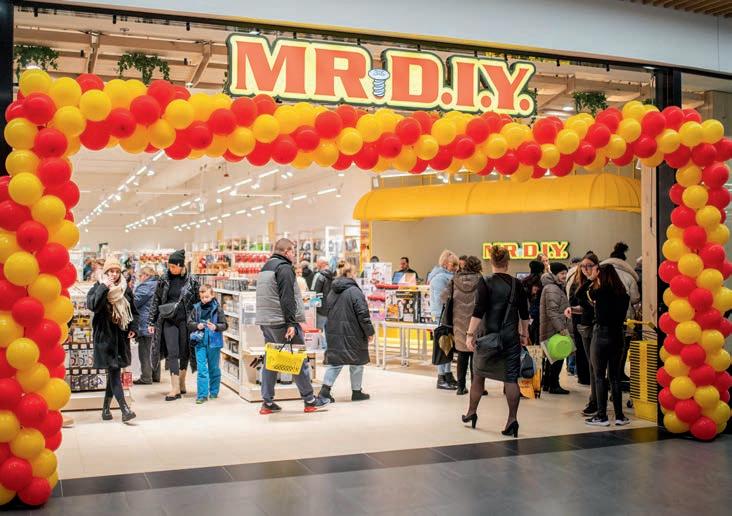

Magdalena Nazarewicz, MR.DIY Poland’s Business Development Director
MR.DIY, Southeast Asia's favorite home improvement store, has officially launched in Poland, marking its entry into the 13th country in its growing global network.
This autumn, the retailer opened two stores in Zabrze and Krakow, with plans to expand further across the country. The move builds on MR.DIY’s rapid growth, which began with a single hardware store in 2005 in Malaysia and now encompasses 4,000 locations across Asia and Europe. With a presence in markets like Malaysia, Thailand, Indonesia, and Spain, Poland is MR.DIY’s third European market after Spain and Turkey. According to Magdalena Nazarewicz, MR.DIY Poland’s Business Development Director, the expansion reflects a strategic focus on delivering value and convenience to local shoppers.
“We aim to provide Polish customers with a diverse range of everyday essentials to support creative and convenient living,” Nazarewicz said. “MR.DIY is committed to becoming a welcoming destination for families and communities in Poland.”
Polish shoppers can expect a wide selection of products across ten categories, including home improvement, hardware, and seasonal items customized to local tastes. MR.DIY stores in Poland are designed with a simple, Scandinavian-inspired layout and will operate in both shopping galleries and retail parks.
As the company continues its expansion, MR.DIY's mission remains clear: offering affordable and innovative solutions for every home. Poland’s addition to the network is a significant step toward solidifying its presence as a global retail powerhouse.

Trasti, a fast-growing digital insurer, combines interest-free premiums with cutting-edge tools like Bianka, a virtual assistant simplifying motor claims reporting through automation and realtime integration with UFG databases.
Trasti is a digital insurance brand that entered the market in March 2021 and has since gained nearly 500,000 customers. Its offerings are available through agents, insurance comparison platforms, and the Trasti website. The brand features premiums payable in interest-free installments and comprehensive car insurance (AC) compensations of up to 100% of the vehicle's value.
In late November, Trasti introduced a new solution in the form of a virtual assistant. This tool is designed to help users report motor claims in an intuitive way. Integration with UFG databases reduces the amount of information needed from those involved in an incident. The assistant, Bianka, guides users through the required steps, confirms actions, and prepares a statement for the at-fault driver. During the claims process, participants receive relevant correspondence electronically, and details are sent in real time to the claims management system. This system segments cases and prepares estimates immediately for straightforward incidents. Estimates are confirmed with the client, and the process is highly automated.
“More than three years of Trasti’s operation reflect the company’s focus on investing in modernity and optimizing the insurance process,” said Janusz Wojtas, CEO of Trasti.

From 2015 to today: Tom McGrath, Principal of BSW, on shaping future leaders in a multicultural setting.
Interview by Morten Lindholm
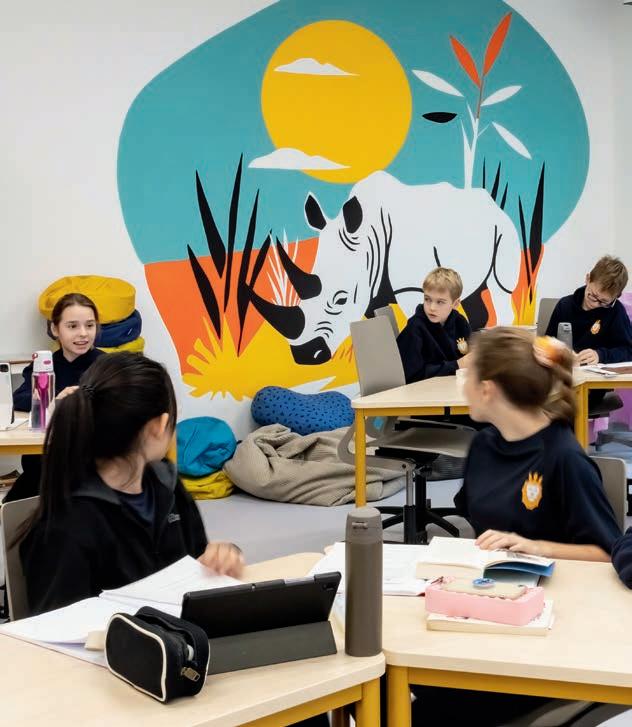
ML: British Primary School of Wilanow (BSW) was founded in 2015 and now has over 400 pupils enrolled. Can you briefly sum up the first decade of operations in Wilanów? Who benefits from your educational provision?
Tom McGrath: I joined the fledgling school in 2017, and I am now in my eighth year at BSW. While I missed the very early days, I have a perspective on much of this period. It was a modest start in a small building with just four classrooms. By the time I joined in 2017, the school had grown into a primary school up to Year 5. Here are some highlights:
In 2018, we gained Council of British International Schools (COBIS) Compliance Status. This professional body represents British international schools worldwide, and this was an important quality mark for us and our parents. Additionally, we became a Cambridge Accredited School, offering the Cambridge Checkpoint Curriculum at Key Stage 3 (Upper Primary).
In 2019, we opened a major extension to the school, adding six new classrooms, cloakrooms, and other facilities. These spaces soon filled up.
In 2021, we had our first graduating class of Year 9 pupils—just four in this pioneer group—and achieved COBIS full accreditation.
In 2023, we joined the International Schools Partnership (ISP), a global organization of over 80 schools, and began constructing two new wings of the school.
In 2024, we opened our new preschool building, sports hall, KS3 building, and various specialist rooms. We are now planning further development of our outdoor spaces.
All of this has been achieved thanks to our amazing staff, supportive parents, and wonderful pupils, while adhering to our strong values-based education and “Walk of the Lion” ethos. We are proud to represent over 40 nationalities, with our diversity growing each year. Our school serves


the internationally minded community in Warsaw.
ML: Your school joined the prestigious network of ISP schools in 2023. How has this changed BSW?
TM: First, it accelerated the construction project that was fundamental to our school’s development; we are now operating on a new level. Secondly, it gave us access to a range of skills, expertise, and experience, primarily in international education but also in other areas of operation. Finally, it connects our pupils and staff with peers around the world, fostering international learning opportunities for our community.
ML: What activities outside the classroom do your pupils participate in?
TM: For many years, we have successfully run a Forest School program, giving all ages—from Nursery upwards—the chance to explore, cooperate, and learn in a forest
All of this has been achieved thanks to amazing staff, supportive parents, and wonderful pupils “

environment. As part of ISP, we are running a Changemakers’ project where pupils take responsibility for a memorial site in Wilanów, commemorating young scouts killed during the Warsaw Uprising in 1944. This helps foster a sense of positive patriotism. We also organize excursions, foreign trips, and green camps. As we integrate further into ISP, we look forward to more connections with likeminded schools in the group.
ML: Is BSW looking at extending its offerings to older age groups beyond primary?
TM: We are fortunate to have a sister school, Akademeia High School (AHS), also a member of ISP Schools, located just across the road. AHS offers a prestigious high school program, with many graduates attending leading world universities. Many of our pupils join AHS after completing their studies at BSW. ISP is an ambitious organization, and it is open to exploring new projects in the Warsaw region.
ML: The local context is key for pupils. How does BSW integrate this multicultural community into Polish traditions and culture?
TM: Our Polish context is central to the school’s identity. All international pupils can learn Polish as a foreign language, and we encourage them to maintain and develop their multilingual skills. We celebrate a range of events throughout the year. For example, we mark Warsaw Day in early October to commemorate the end of the Warsaw Uprising, and St. Nicholas’ Day (Mikołajki) is approaching soon, which we celebrate as a fundraising event for Smile Warsaw, a charity supporting the homeless. Warsaw’s many museums and landmarks are invaluable for bringing history and culture alive for our pupils. One of my favorite annual events is leading Year 4 pupils in exploring Łazienki Park to discover the Roman influence in this magical place.

Poland’s real estate sector exhibited signs of recovery this year, particularly in the commercial property market, yet not everyone in the property business is having a good year.
By Sean Reynaud
Over 700 construction companies failed this year, either from lack of contracts, cost of building materials, or perhaps because of mismanagement. According to Eurostat, the construction industry’s value is expected to contract by 5.7% for the year, but perhaps rebound in 2025.
The number of residential buildings has dropped by 9.9% year-over-year, driven largely by rising costs due to high inflation.
The commercial sector, by contrast, saw second-quarter investment volumes exceed €1.3 billion—the highest quarterly figure in over a year and an 80% increase compared to the same period in 2023, according to Knight Frank. Most of this capital has been directed toward developers.
Several significant projects are underway across Poland, including Vastint’s Waterfront project in Gdynia, the Wrocław Oncology Hospital in Wrocław, the Kotla Photovoltaic Farm in Kotla, and the Wita Stwosza Street Student Accommodation in Kraków.
The Central Transportation Hub (CPK) project stands out as a significant investment, aiming to serve 34 million passengers annually by 2032. This development is expected to stimulate the real estate market, particularly in the surrounding areas. Additionally, industrial and logistics hubs like the Poznań Warehouse Complex are being developed. Clearly, things are getting built.
According to Cushman & Wakefield, the Industrial and Logistics segment experienced a significant uptick in occupier activity, achieving the highest leasing volume in Europe during Q2 2024. By Q3 ‘24, Poland’s total warehouse stock had reached 33.3 million square meters, with an additional 1.9 million square meters under construction, according to CBRE.
BNP Paribas noted that the office market remained strong, especially in Warsaw, where the vacancy rate decreased to 10.7% by Q3 2024. The rise in prelet agreements suggests growing occupier interest in office buildings under construction. Colliers notes that Warsaw’s office market expanded by 75,000 square meters, quadrupling the amount from last year. In Q3, three office projects totaling 11,200 square meters were completed. Hope you’re ready to go back to the office.
Rising labor and material costs are pushing developers to focus on profitable segments such as office spaces, mixed-use projects, and warehousing, while steering clear of speculative developments. High-value, long-term projects that incorporate cost-saving strategies, modular construction, or energy-efficient designs have become more viable alternatives to the unrestricted expansion seen during periods of low inflation.
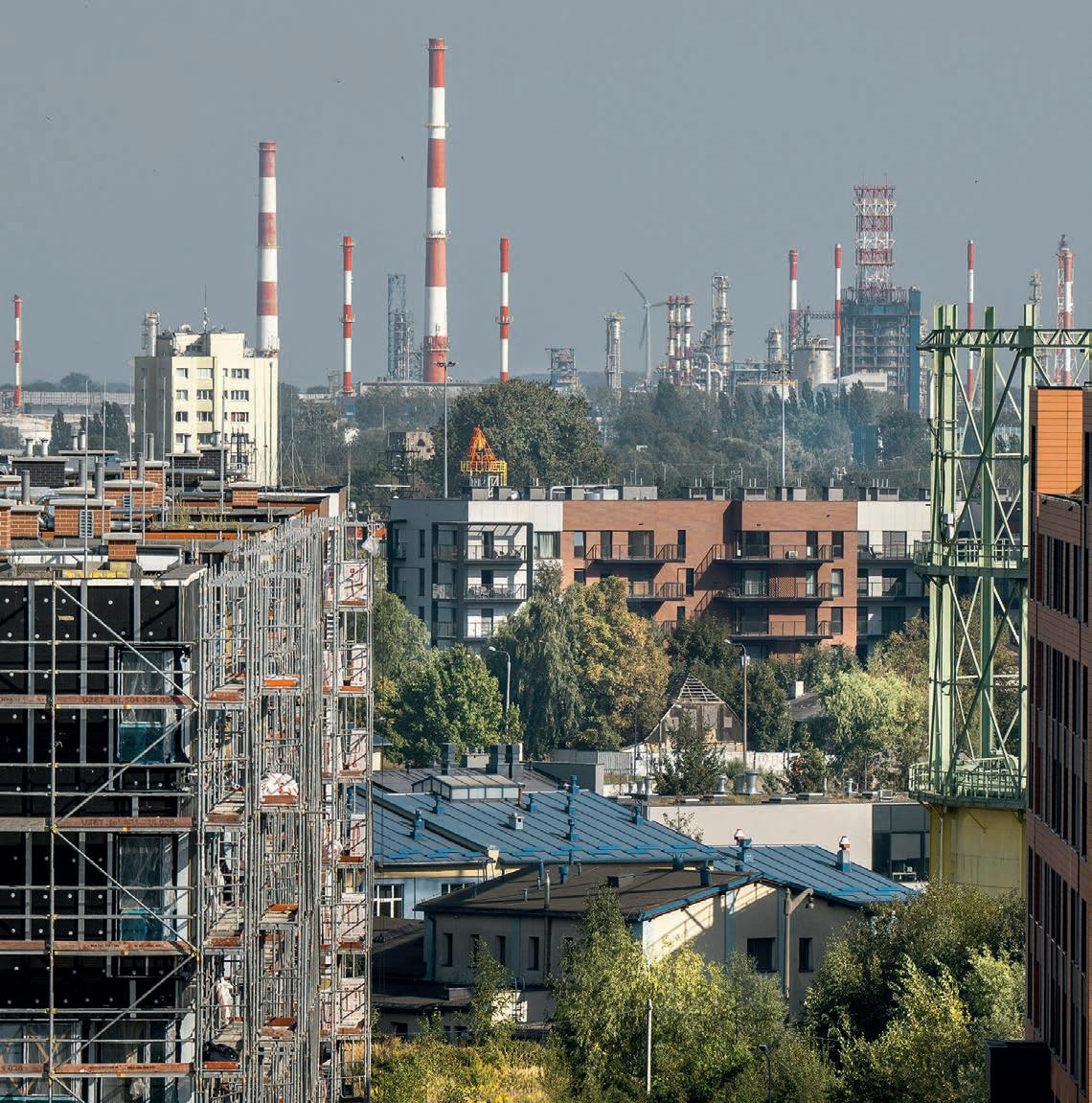
Poland’s economic performance in 2024 has demonstrated resilience, in the face of disruptive factors, from outside and within.
By Sean Reynaud
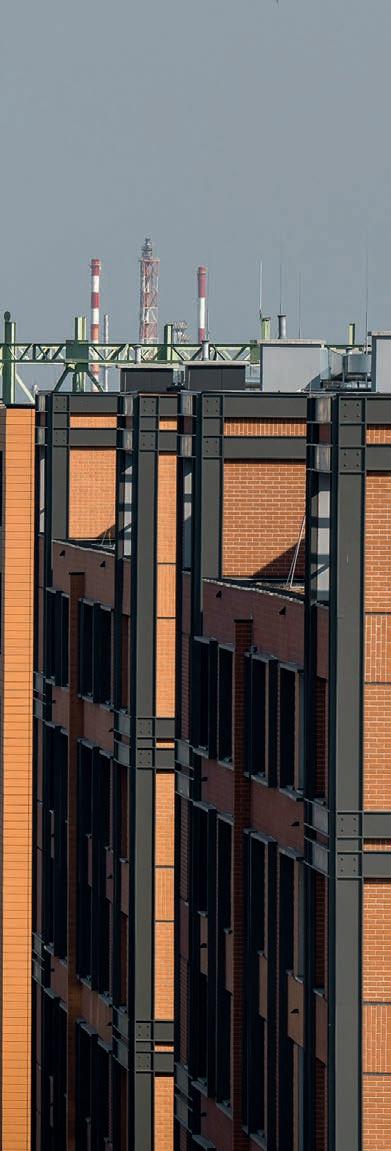
Many things can be said about Poland, but one statement rings true across time: the true strength of Poles comes in the face of challenges. The war in Ukraine has both hurt and helped Poland, mostly in the form of a surging immigrant workforce and investments from abroad for defense. The flood in mid-September destroyed infrastructure and upended lives, but also spurred investments to patch weaknesses in infrastructure. Poland continues to attract FDI despite the geopolitical instability and weakness of its traditional partners.
After the post-pandemic wobbly recovery, Poland’s GDP growth stabilized in 2024, with the European Commission forecasting a 3.0% increase for all of 2024.
Growth is expected to accelerate to 3.6% in 2025, fueled by robust private consumption and investments, particularly in EU-funded public projects. The Polish Economic Institute provided a more cautious estimate of 2.6% growth for 2024, rising to 4.1% in 2025. The World Bank aligns closely with the European Commission, having also predicted 3.0% growth in 2024, while according to OECD, Poland’s economy will be one of the fastest growing within OECD in 2025 at 3.4%, second only to Ireland and Costa Rica.
Inflation remains a critical concern for Poland’s economy, as it is troublesome in the world economy generally. The European Commission projected an average inflation rate of 3.8% for 2024, with a temporary increase to 4.7% expected in 2025 due to the planned unfreezing of energy prices.
Similarly, the OECD forecasts inflation at 4.8% for the entire 2024, tapering to 3.5% in 2025. These figures reflect the ongoing challenges in managing price stability, particularly in energy and food sectors.
Despite the inflationary pressures on wages, Poland’s labor market has shown significant resilience, with unemployment rates projected to remain low. The European Commission anticipates a 2.9% unemployment rate in 2024, decreasing slightly to 2.8% in 2025. The Polish Economic Institute suggests a registered unemployment rate of 5.3% by the end of 2024, reflecting disparities in regional labor market dynamics.
While low unemployment may appear to be a positive, it is often an indicator of larger problems in the overall workforce. Poland’s demographics issues are clear, leading to labor short-
The true strength of Poles comes in the face of challenges “
ages in various fields. Low unemployment could lead to lower productivity and reduced economic flexibility.
In addition, wages have increased in Poland along with inflation. While this may be seen as a positive, it could eventually develop into a wage-price spiral, with business (labor) costs leading to higher prices, which could translate into demands for further wage increases.
The National Bank of Poland’s efforts to control inflation, including interest rate adjustments, have influenced the stability of the Polish złoty (PLN). According to Reuters, Poland announced an extension of its energy price freeze for households into 2025 to curb inflation, which could impact the PLN’s performance in international markets. Recent ING analysis predicts more gains for PLN as it has outperformed its CEE peers since the US election. Yet much depends on the National Bank of Poland’s rate change decisions.
Poland’s economy is on a stable recovery trajectory, but it faces challenges such as inflation management and external economic uncertainties. Strategic investments and prudent monetary policies will be critical in sustaining growth into 2025 and beyond.

Since the new Polish government took office in December 2023, state-owned enterprises (SOEs) have undergone significant changes. According to Bloomberg, a key goal has been the “de-politicization” of SOE management, seeking to minimize political interference and improve operational efficiency. As a result, Poland has seen a wave of dismissals.
By Sean Reynaud
“De-politicization” has a familiar, and unpleasant ring to it, like a malapropism of demobilization, decentralization, destabilization or delegitimization. Whatever its origin, “de-politicization” has led to widespread dismissals within SOEs, as the government seeks to replace political appointees from the previous administration. However, these efforts have encountered resistance from loyalists of the former ruling party, Law and Justice (PiS), including President Andrzej Duda and top judicial and financial officials, complicating the restructuring process, according to the Financial Times
In the energy sector, state-controlled entities like Orlen have taken steps to demonstrate political neutrality, including plans to divest media assets acquired under the previous administration.
According to the Financial Times, this initiative aims to improve corporate governance and attract foreign investment. Orlen, a leading refiner, has come under scrutiny following a state audit that revealed an estimated loss of PLN 5 billion ($1.22 billion) on the Olefins petrochemicals project. Shareholders, as reported by Reuters, have authorized the company to pursue damages from former managers, including ex-CEO Daniel Obajtek, for financial losses incurred during their tenure.
Perhaps it’s stuffed in the couch?
PGE, Poland’s largest utility, reported a 24% year-on-year decline in third-quarter net profit, primarily due to challenges in its coalbased power generation segment. According to Reuters, the government is reconsidering previous plans to consolidate coal assets into a new state-owned entity, focusing instead on assessing the future of individual power units. U.S. and South Korean nuclear projects in Poland may, in ten years’ time, boost energy production, but for the moment it’s a choking cloud of yellow smog for the lot of us.
In the week leading up to Christmas, 2023, Poland’s culture minister, Bartłomiej Sienkiewicz, sacked the management of TVP, a state owned television company, Polish Radio and the Polish Press Agency (PAP) in order to ensure “pluralistic and impartial” programs for the public. In a dramatic turn, the broadcasters went off air temporarily, followed by a sit-in protest. However, these actions, the sackings, not the sit-ins, faced legal challenges and raised concerns about the processes employed.
Despite some of the de-politicization efforts yielding mixed results, analysts agree that the Tusk government’s approach to SOEs has increased transparency, and improved financial performance.
One of the chief signs of approval coming from the EU was the release of the $6.7 billion of EU post-pandemic recovery fund to Poland, funds that were previously blocked due to concerns over judicial changes by the former government. This financial boost has aided Poland’s economic recovery and green energy transition.
Poland, situated at the crossroads of Europe, has long been a focal point for substantial foreign investments. Its robust Foreign Direct Investment (FDI) inflows, coupled with growing political influence, have drawn even more international attention lately. These factors have played a pivotal role in transforming the nation, marking an impressive turnaround from its days under the Polish People’s Republic (PRL).
By Sean Reynaud


Poland’s infrastructure, even though greatly improved over the past two decades of Poland’s EU membership, remains a significant challenge to its progress. While substantial investments have been made in transportation networks such as roads, bridges, and rail since the PRL era, recent flooding highlighted the pressing need for further development.
Energy, above all, stands out as a critical vulnerability, exacerbated by the loss of inexpensive Russian oil and the EU’s push to phase out coal power plants. For businesses operating in Poland, reliable and sustainable energy is an essential but increasingly complex necessity.
Enter the United States and South Korea. The U.S. International Development Finance Corporation (DFC) is considering an investment exceeding PLN 4 billion (approximately $975.7 million) in Poland’s first nuclear power plant. The project, with an estimated total cost of $40 billion, aims to reduce Poland’s reliance on coal—an ecological sore spot between Poland, the EU and investors. According to Reuters, the contractor for the project, slated for completion in 2040, will be the American giant Westinghouse Electric. The United States has long seen Poland as a strategic ally in this part of Europe, and is willing to shore up Poland’s defenses, also to protect its own interests. Overall, the US has invested $62.7 billion in total, according to KPMG, including providing assistance in Poland’s national defense.
South Korea, which shares a similarly abusive history with its neighbors, is heavily invested in Poland too, seeing the country as its path towards EU engagement. According to PAIH, South Korea has 550 companies operating within Poland, making it the second-largest non-European investor after the United States. The cumulative value of South Korean investments in Poland reached €7.7 billion by April of 2024, and this is apart from the framework agreement between South Korea and Poland for defense contracts to
provide K2 tanks, K9 howitzers, and FA-50 fighter jets.
European countries like Germany and France lead the way in independent, European investment in Poland. Germans outsource production to Poland, mostly because of lower labor costs and favorable administrative conditions, according to Le Monde. Most FDI from Germany and France went to industrial manufacturing, financial activities, wholesale trade, and real estate, according to Invest in Poland.
With Germany’s recent political turmoil, as well as its growing economic crisis, Poland
Poland has historically attracted significant foreign investment, but the recent economic slowdown in the EU has prompted the country to look further away for inflows
has seen a sharp decline in new orders since at least March 2022, according to Reuters. Germany’s energy crisis and economic challenges have indirectly affected Poland, and may disrupt regional supply chains as uncertainty settles in.
Poland stands at a pivotal junction: while it has historically attracted significant foreign investment, particularly from its western European neighbors, the recent economic slowdown in the EU has prompted the country to look further away for inflows. Additionally, the geopolitical instability across its eastern border had shifted the investment profile from purely manufacturing-oriented to more heavily focused on defense.


(covering) Hospitality, Investment Market,Logistics , Mixed-use, Office, Residential, Retail
Find more daily at wbj.pl/real-estate
Following the approval of the local zoning plan in September 2024, Nowy Wełnowiec is entering the implementation phase. The 30-hectare revitalised site formerly occupied by the Silesia Metallurgical Plant will become home to a modern mixed-use district with predominantly residential functions. Nearly a third of the area will be dedicated to open green spaces. The Capital Park Group, which has been active on the Polish property market for more than 20 years, is responsible for the implementation and management of the project. The architectural concept comes from the JEMS Architekci studio. The investor has received permission for the modernisation of the former compressor house building from the beginning of the 20th century, which will become one of the symbols of the new district in the northern part of Katowice.
Nrep’s Lett Markowska rental project in Warsaw's Praga Północ district secured PLN 60 million in financing from Santander Bank Polska. The development includes three buildings with 179 fully furnished apartments (70% already rented) and eco-friendly features like solar panels and hybrid heating. The BREEAM-certified project emphasizes sustainability and community, offering coworking spaces and relaxation areas. Nrep aims to decarbonize its European portfolio by 2028. Santander's Brendan Long highlights growing investor and tenant interest in Poland’s PRS market, noting the importance of eco-friendly, energyefficient developments for stable growth.
Nest Leasing has leased 250 sqm in the Teal office building, part of the Off Piotrkowska Center in Łódź. The company, under the Nest Lease brand, specializes in financing vehicles, machinery, and medical equipment, alongside offering insurance through its subsidiary, Nest Ubezpieczenia. Teal offers 3,000 sqm of space, with 2,000 sqm dedicated to offices, designed for IT and tech firms. Features include fiber optics, energy monitoring, and customizable layouts.
OPG Property Professionals and Horyzont Nieruchomości managed the leasing process. Other tenants include Grafton Recruitment, mFinanse, and BinarApps.
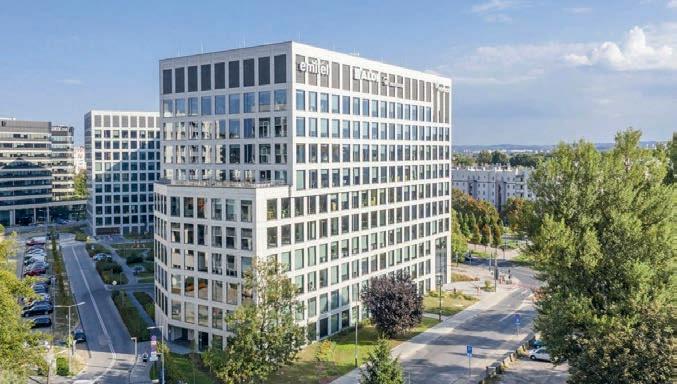
Echo Investment's Brain Park office complex in Kraków has received BREEAM NC Excellent certification for all three buildings, with the latest phase scoring 78.9%. Spanning 43,000 sqm of office space and 10,000 sqm of green areas, the complex prioritizes sustainability, meeting ESG standards for tenants. Certification was managed by JWA under the BREEAM International New Construction 2016 standard. The development also boasts WELL Health-Safety and WiredScore Platinum certifications. Tenants include Volvo Tech Hub, EY, and PepsiCo. Brain Park reflects Echo Investment’s eco-conscious design philosophy, enhancing work environments while reducing environmental impact, according to certification coordinator Anna Korycińska.

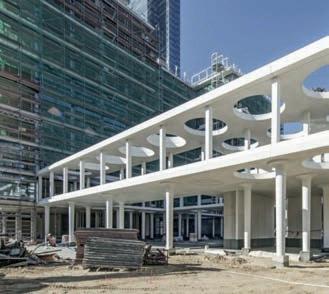
Office House, a nine-story office building in Warsaw’s Rondo Daszyńskiego area, is set to open in spring 2025. Developed by AFI Europe and Echo Investment, the 32,000 sqm building is 70% leased and designed by JEMS Architekci. Highlights include an energy-efficient facade, green loggias, roof terraces, and two conservatories. Sustainability features include 100% renewable energy, waste heat recovery, and plans for a nearby 2-hectare park. The project targets top certifications: BREEAM Outstanding, WELL, WiredScore, and SmartScore. Part of the Towarowa22 city-forming initiative, the development will integrate offices, housing, retail, and cultural spaces.



The Waterfront project in Gdynia transforms industrial land into a mixed-use hub, blending residential, office, cultural, and leisure spaces. Inspired by the city’s maritime heritage, it promotes community, economic growth, and tourism. WBJ’s Morten Lindholm sat down with Vastint’s Project Manager, Janusz Tybuszewski to discuss the ongoing project.
and central governments.
Before World War II, Gdynia’s harbor was a real innovator. However, like many coastal cities, the usual shift from industrial areas to vibrant, public spaces hasn’t happened here, mainly because the harbor still plays a key role in Poland's strategy. While cities in places like Denmark have turned old industrial areas into cultural and leisure spots, Gdynia’s waterfront needs to take a different approach—one that honors its history while also making room for growth and modern development.
The Waterfront project aims to reshape a historically significant area of Gdynia, turning neglected industrial land into a vibrant, modern quarter. What inspired this vision, and how does it honor Gdynia’s heritage while looking towards the future?
The inspiration comes from Gdynia’s history, from its unique evolution. Before the war, and communism, Gdynia was on track to become one of Europe’s leading harbors. It even surpassed Hamburg and Bremerhaven in cargo volume at one point. This was an incredible achievement for a city that was once a small fishing village. In 15 or 20 years the harbor was thriving.
This rapid growth, from a handful of fishermen’s cottages to a city of 130,000 inhabitants before World War II, is a heritage that deserves respect and acknowledgment. Our project builds on this history by providing the “missing piece” for the city’s urban plan.
WBJ: Tell me about the background of the project?
The Waterfront project in Gdynia has seen remarkable strides since its inception, although there have been some challenges. With its position at the city center, the project aimed to walk the line between a modern, urban hub, while at the same time honoring Gdynia’s rich heritage as a historic
harbor city. In fact, if not for the devastations of war and communism, Gdynia would have been the largest port in the Baltic, or perhaps even of all Europe. But today, the balance between expanding civic spaces, and maintaining the industrial and strategic significance of the port, has been a long-standing issue, complicated by divergent priorities between the local
At one point, Gdynia’s city-center was detached from the waterline. This was quite unusual for a harbor city. However, Vastint’s Waterfront development extends the city center directly to the coastline, creating a seamless connection, something that hasn’t existed before. The new design blends architecture and functionality, offering an elegant yet practical combination of residential,
office, and leisure spaces, all integrated into the city’s fabric. In essence, this project reconnects Gdynia to its maritime roots while looking towards the future.
The project includes office spaces, hotels, and leisure zones. How do you envision Waterfront contributing to Gdynia’s economy and its reputation as a business and leisure hub?
Waterfront is where the fresh sea breeze meets the buzz of business activity. This special mix is at the core of the project. It brings together the energy of a lively city center with the calm of being by the water, making it different from other urban areas. This combination improves the everyday life of residents and workers while also drawing businesses looking for a prime location.
Waterfront is more than just a place to live or work; it’s a lively spot that plays a big role in Gdynia’s economy and culture. The office spaces are designed to be modern and practical, offering a space that encourages productivity while taking in beautiful sea views. This mix of uses helps Gdynia grow as a hub for both business and leisure, creating an area that supports local jobs and fuels economic growth.
The mix of residential, office, cultural, and leisure functions ensures that Waterfront isn’t just a workplace or residential area—it’s a vibrant community. This blend supports Gdynia’s economy by attracting businesses, tourism, and residents who value a unique lifestyle.
Simply put, happy, relaxed people are more productive, and this positivity feeds directly into the local economy.
When is the project expected to be completed, and when will residents begin moving in? How large is the residential community expected to be, and could you share more about the retail, leisure, and everyday conveniences designed to enhance residents’ quality of life?
Waterfront has three phases. The
first phase was completed in 2015 and included an 11,000-squaremeter office building (known as the “bank building”) and a 200 room hotel. This phase alone created about 1,000 jobs and brought back life to the area.
The second phase began this year, added 16,000 square meters of office space and 126 residential apartments, accommodating approximately 400 residents. The apartments will be equipped with high-quality finishes, including wall and floor claddings, and furnished kitchens, with sales planned for Q1 2025. This phase also includes 20 service units to support various business activities.
The third, and most ambitious, phase will introduce two hotels, cultural spaces, including a multiscreen cinema, and office buildings totaling 6,000 square meters. The development will create space for over 3,000 people, including residents, workers, and visitors. A standout feature of this phase will be versatile spaces that can host all sorts of events, like conferences, with the option to expand into an outdoor square for bigger gatherings. This will make the Waterfront the perfect spot for events like the Polish Movie Festival and the Lady Jazz Festival.
The project is all about creating a lively, mixed-use community. With shops, leisure spots, and everyday conveniences, the Waterfront has something for everyone. It will boost Gdynia's economy and turn the area into a buzzing hub for business, culture, and tourism. The location, design, and range of amenities will make it a great choice for anyone looking for a connected, high-quality living experience.
Could you share more about how the design of buildings and public spaces reflects the city’s maritime character, and how it enhances community interaction?
Gdynia, called the "Pearl of Modernism on the Baltic" during the interwar period, stands out with its unique, cohesive architectural style. Maritime-
inspired elements such as balconies resembling bosun's boots, long glazed corridors reminiscent of captain’s bridges, and a predominance of white facades—dubbed “Gdynia color” before World War II—captures the city’s nautical essence.
The team at JEMS architectural firm has put a modern twist on these classic nautical elements. The building facades feature detailed piping that looks like yacht poles, and sharp angles inspired by ships slicing through the waves. Between the buildings, we’ve created open squares connected by walkways, surrounded by local greenery like dune grasses and pine trees, bringing the coastal vibe to life.
Overall, I’d say the design prioritizes community interaction, with outdoor seating areas and interconnected plazas. These spaces draw people in so that residents and visitors can connect, relax, and embrace the maritime character of Gdynia. Modern design and maritime heritage come together in something of an homage to what was, but with an eye towards the future.
How the project’s design supports a relaxed, coastal lifestyle for residents:
The Waterfront apartments are all about connecting your home to the seaside vibe, making life relaxed and enjoyable. With big windows and balconies, you can soak in the stunning sea views right from your living room. Big sliding doors enhance this connection, allowing the sea breeze to flow inside and blur the lines between indoor and outdoor living.
The apartments come in two unique styles—Harbor and Yacht— both inspired by the sea. The staircases are designed with lots of glass to keep spaces bright and connected to the outdoors. The buildings are set up to block those strong coastal winds, so you can enjoy being outside no matter the season. With landscaping that includes dune grasses and pine trees, the whole area feels like a peaceful seaside getaway.

VASTINT POLAND UNVEILS TRANSFORMATIVE GDYNIA WATERFRONT PROJECT
Vastint Poland proudly announces the completion of the second phase of the Gdynia Waterfront project, an ambitious development transforming over four hectares of neglected industrial land into a newly regenerated, multifunctional, urban quarter. This new district integrates residential, office, hotel, and recreational spaces, creating an inclusive environment for living, working, and leisure.
Situated near Kościuszko Square and the historic port area, Gdynia Waterfront capitalizes on its prime location to bridge the city center with the waterfront. Once underutilized, this area now stands as a modern quarter, harmonizing diverse urban functions to enrich residents' lives and attract businesses. The development includes apartments, offices, cultural venues, and green spaces, fostering a dynamic community atmosphere.
The quarter offers year-round opportunities for art, events, and relaxation, inviting residents and visitors alike to explore its public plazas, green courtyards, and seaside-inspired landscapes. With views of iconic landmarks like the museum ship Dar Pomorza, Gdynia Waterfront establishes itself as a focal point of cultural and recreational activities.


Waterfront is more than just a place to live or work; it’s a lively spot that plays a big role in Gdynia’s economy and culture
The architecture of Gdynia Waterfront subtly nods to the city’s modernist heritage while embracing contemporary design principles. Elegant office buildings, harmonious courtyards, and interconnected streets ensure both functionality and aesthetic appeal. Carefully chosen plants line the pathways, blending seamlessly with the Baltic landscape.
Environmental considerations are central to the project. With 25% of the area designated as biologically active, the landscaping incorporates drought-resistant coastal species, reflecting the seaside character of the region. Green roofs, energy-efficient systems, and underground parking minimize the urban heat island effect and contribute to the project's sustainability.
Gdynia Waterfront represents a bold step toward revitalizing the city, merging history with innovation. By offering a space for relaxation, culture, and business, it creates a new heart for Gdynia— one where residents and visitors can thrive.
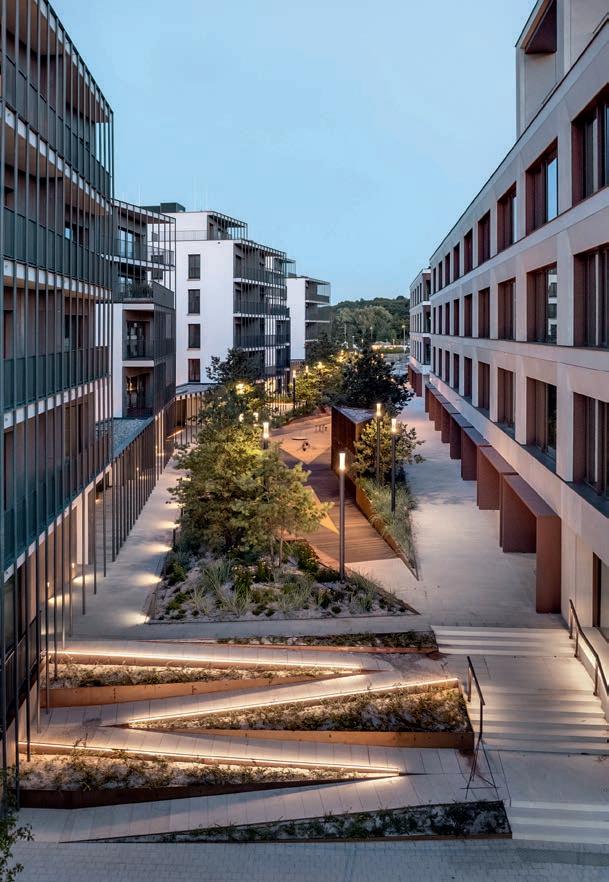
BPI Real Estate Poland has observed transformative growth in the Polish real estate market since 2009, with trends in sustainability, energy efficiency, and smart living reshaping client priorities. Their portfolio features 13 residential projects, including premium developments like PianoForte in Warsaw. Béranger Dumont, General Manager of BPI Real Estate Poland, discusses the Polish housing market.
WBJ: BPI Real Estate Poland has been active in the Polish market for nearly 15 years. Could you share your insights on the key changes you’ve observed in the Polish real estate market?

Béranger Dumont: Since our debut in the Polish real estate market, in 2009, with the launch of our first project, Cztery Oceany in Gdańsk, we’ve witnessed dynamic growth in Poland’s residential sector. Over the past 15 years, the housing market has surged in response to rapid urbanization, shifting demographics, and the improving economic conditions of Polish families.
The industry has undergone a significant transformation over the years. Architectural trends have evolved, new construction technologies have gained prominence, and an emphasis on sustainability has become a defining feature of the market. These principles have played a central role in shaping the development of our projects. The market has matured considerably, with today’s clients prioritizing energy efficiency, sustainable materials, and smart home solutions, reflecting a more sophisticated and environmentally conscious buyer profile.
This dynamic landscape underscores not only the pace of change in the Polish real estate sector but also our ability to adapt to emerging trends and meet the expectations of our clients. We’re proud of our contribution to the market’s growth and remain committed to delivering high-quality, innovative residential developments in the most desirable locations across key cities in Poland.
Our portfolio now encompasses 13 residential projects, including completed developments such as Czysta4 and Bulwary Książęce in Wrocław; Vilda Park and Panoramiqa in Poznań; Cztery Oceany in Gdańsk; Bernadovo in Gdynia; and Rezydencja Barska, WolaRE, Wola Libre, and Wola Tarasy in Warsaw. Our current projects under construction include Chmielna Duo in Warsaw and Cavallia, a multi-phase mixed-use development in Poznań undertaken in partnership with Revive Poland. Looking ahead, our latest planned project, PianoForte, is also set to be located in Warsaw.
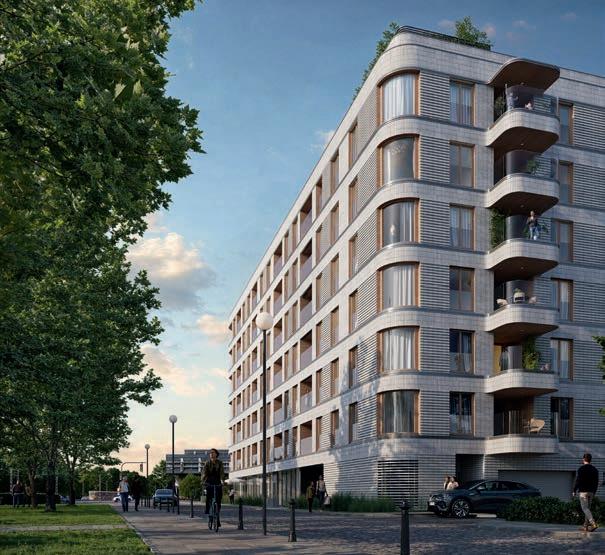
The premium segment of Poland's residential market is particularly strong. Could you elaborate on the BPI Real Estate Poland projects that exemplify this trend?
Indeed, we view the premium residential market in Poland as the most stable segment of the industry. Our portfolio includes several high-end projects that demonstrate our commitment to crafting exclusive yet sustainable living spaces. These include Chmielna Duo in Warsaw, Czysta4 in Wrocław, Bernadovo in Gdynia, and Cavallia in Poznań. Our latest planned development, PianoForte, located in Warsaw's Lower Mokotów district, serves as a prime example of this trend and reflects our dedication to excellence in the premium segment.
PianoForte – what makes this development stand out?
PianoForte exemplifies two of BPI Real Estate Poland’s core strengths. First, it showcases our extensive experience in delivering prestigious residential projects, such as Rezydencja Barska and Chmielna Duo in Warsaw. Second, it highlights our expertise in navigating the complexities of land acquisition and permitting processes. This project, in particular, presented significant challenges, but our solution-oriented team demonstrated remarkable resilience and innovation to bring the vision to life. Furthermore, it underscores a third defining strength— and true passion of ours: delivering

the most demanding and rewarding projects for our clients.
We are especially proud that PianoForte enables us to reaffirm our long-term commitment to Warsaw. It stands as a testament to our dedication to creating exclusive, highquality living spaces that cater to the needs and aspirations of modern residents. This project embodies the values and vision that define BPI Real Estate Poland, combining luxury, functionality, and sustainability in a way that sets it apart in the premium residential market.
PianoForte presents a rare opportunity to combine the vibrancy of urban living with the tranquility of lush green surroundings. Situated in a unique and prestigious neighborhood, this development offers residents the convenience of trendy urban hotspots within walking distance, all while being embraced by the serenity of nearby parks. The location is truly exceptional, nestled close to iconic green spaces such as Łazienki Królewskie – Warsaw’s most celebrated park – and the intimate Morskie Oko Park. The project integrates with the city’s architectural charm, delivering multi-dimensional comfort and a living experience of the highest caliber.
As someone familiar with the area, I can confidently assert that this location offers an unparalleled living experience. Here’s a personal tip: during winter, the gentle slopes of the nearby Morskie Oko Park make for a great family sledding outing. In
the warmer months, the renowned Łazienki Królewskie, just steps from PianoForte, becomes a haven for leisurely walks or delightful playtime at its state-of-the-art playground.
Such a unique location calls for a special design. Could you tell us more about the architecture of the development?
A location as extraordinary as PianoForte demands an equally remarkable design. The development features an elegant structure inspired by the principles of modernist architecture, crafted by the acclaimed KAPS Architekci studio. Built with the finest materials and thoughtful architectural solutions, the project balances aesthetics, functionality, and everyday comfort.
This development exemplifies our deep expertise in architectural design. Beyond the meticulously crafted facades, we have placed significant emphasis on the interiors of the common areas. These spaces are seen as more than just practical; they are both elegant and inviting, fostering a sense of community while enhancing residents’ daily living experiences.
Want to know more? Please visit:

In the heart of green Mokotów, one of Warsaw's most prestigious districts, Orkana Apartments is a visionary development that harmoniously blends architectural elegance, advanced technology, and exceptional living comfort. Designed for those who seek the pinnacle of luxury, this project sets a new benchmark for sophisticated urban living.
“Luxury here is understated yet profound, reflected in impeccable quality, meticulous design, and a commitment to the highest standards of contemporary living”
In a world where luxury transcends glamour, Orkana Apartments redefines the balance between elegance, modernity, and tranquility. Situated in the greenest and most exclusive part of Mokotów, this unique development offers not just exceptional living spaces but also a new standard of everyday quality of life.
Orkana Apartments is composed of 13 residences, ranging from two-room apartments of 50 m² to sizable penthouses spanning up to 150 m². With ceilings reaching a height of three meters, each apartment exudes an extraordinary sense of spaciousness. Every design element caters to the needs of the most discerning residents, featuring expansive living areas, functional kitchens, skillfully planned bedrooms, and ample wardrobe space. At Orkana Apartments, luxury is evident in every detail.

At Orkana Apartments technology meets sustainability. The development features integrated heat pump systems, ensuring both optimal comfort and alignment with modern ecological standards. With advanced cooling systems and precise energy management, residents enjoy exceptional living conditions year-round. Balconies, terraces, and private gardens in ground-floor units provide serene spaces for relaxation and leisure.
The prime Mokotów location is a standout feature of Orkana Apartments. Nestled among parks, forests, and nature reserves, it offers residents daily immersion in nature without sacrificing urban convenience. Minutes from Galeria Mokotów and boasting excellent transport links— metro, trams, and buses—it ensures seamless access to Warsaw’s vibrant city center.
Orkana Apartments offers more than a residence—it’s a haven for those seeking daily inspiration. This exceptional development seamlessly combines refined architecture, cutting-edge technology, and verdant surroundings. Luxury here is understated yet profound, reflected in impeccable quality, meticulous design, and a commitment to the highest standards of contemporary living.
Orkana Apartments is more than a home—it’s a testament to your success, aspirations, and way of life. Thoughtfully designed for those who seek more, this development offers subtle, harmonious luxury that redefines elegance. Discover a new standard of sophisticated living in the heart of Mokotów.
Discover Orkana Apartments—where every day becomes a celebration of life.
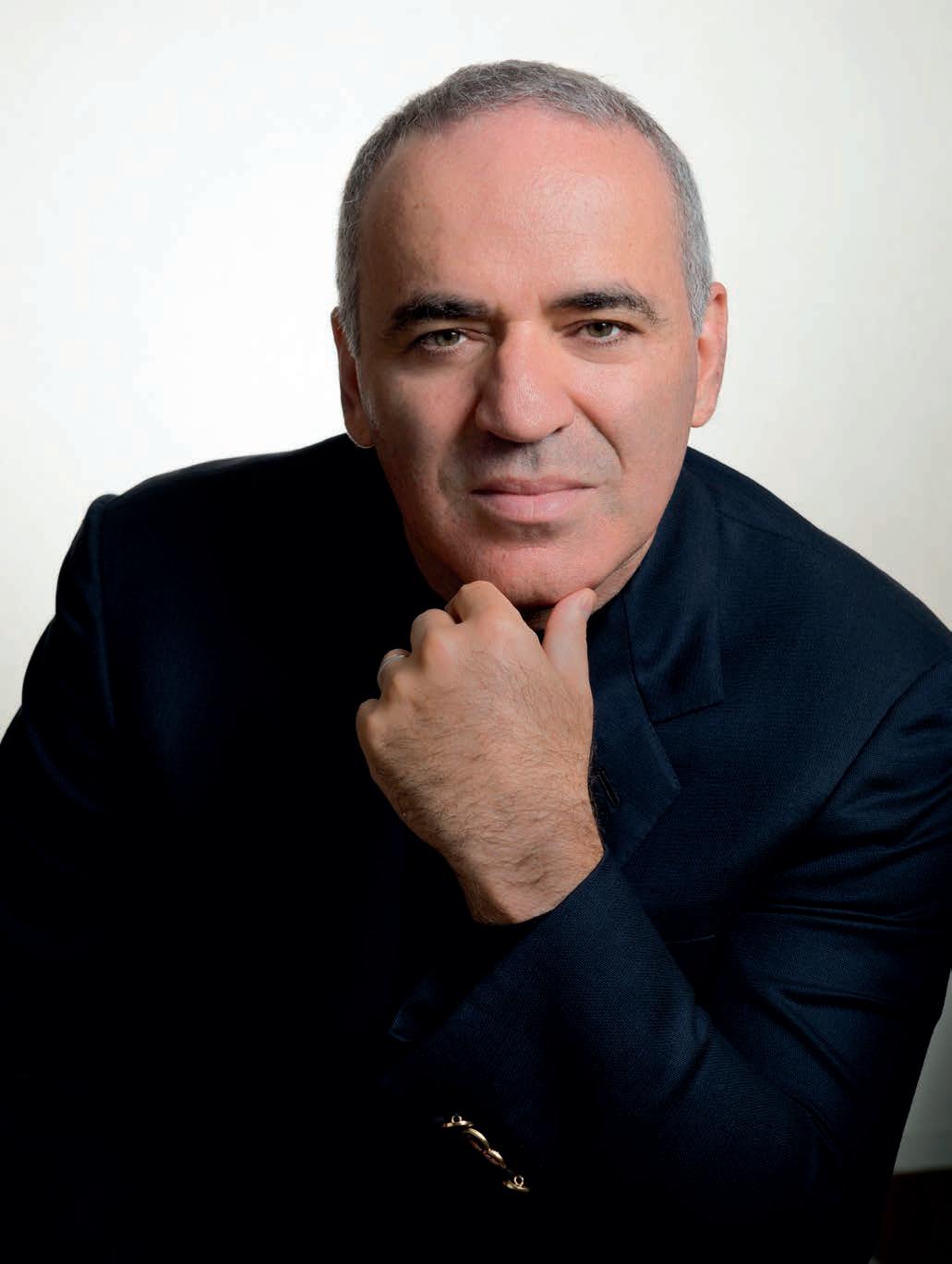
At the 2025 CEEQA Gala in Warsaw, chess legend Garry Kasparov will share insights on artificial intelligence, challenge attendees in chess, and inspire audiences with his unmatched mastery of strategy. All for a night of brilliance and charity.
This is a unique opportunity to witness the brilliance that kept Garry Kasparov at the top of world chess for over 20 years and hear his visionary insights on the future of AI
— Richard Hallward, Founder and Chairman of CEEQA
Widely regarded as the greatest chess player of all time, Garry Kasparov is set to captivate audiences at the 2025 CEEQA Gala in Warsaw on May 21. Attendees will have the rare chance to hear the grandmaster’s compelling perspectives on artificial intelligence and even face him across the chessboard. A highlight of the evening will be a live, on-stage game against Kasparov, auctioned to the highest bidder to benefit charity.
Known for hosting international luminaries, the CEEQA Gala promises another unforgettable night. “We’re thrilled to welcome Garry Kasparov to this year’s gala,” says Richard Hallward, founder and chairman of CEEQA. “His unmatched achievements in chess and his insights into AI and decision-making will make for an extraordinary experience.”
Born in Baku, Azerbaijan, in 1963, Kasparov burst onto the world stage at just 22, becoming the youngest world chess champion in 1985—a record he still holds. For two decades, he dominated the chess world, retaining the top global ranking until his retirement in 2005.
Kasparov’s storied career includes his iconic matches against IBM’s Deep Blue in 1996 and 1997, which highlighted both his genius and the growing prominence of artificial intelligence. These games not only brought chess to the forefront of popular culture but also ignited Kasparov’s fascination with AI and its implications for humanity.
Since stepping away from professional chess, Kasparov has become a leading voice on strategy, decisionmaking, and the evolving relationship between humans and machines. His books, including Deep Thinking and Winter Is Coming, have been translated into over 20 languages, reflecting his global influence.
A frequent speaker at business and academic forums, Kasparov inspires audiences by drawing parallels between the chessboard and the boardroom, offering actionable insights on navigating complexity and embracing innovation.
As part of the 2025 CEEQA Gala, Kasparov’s appearance underscores the event’s tradition of blending world-class entertainment with meaningful contributions. Beyond the chess match auction, the evening will feature interactive activities, providing guests with an immersive and memorable experience. Kasparov is also a fierce critic of Vladimir Putin and the Ukraine war, highlighting his commitment to freedom and democracy.
For details on participating in the Kasparov challenge auction or to secure your ticket for the gala, visit the CEEQA website.
Youngest World Chess Champion: Won at 22 in 1985
Top-Rated Player: Held the #1 ranking for 20 consecutive years
AI Pioneer:
Renowned for his matches against IBM’s Deep Blue
Author: Works include How Life Imitates Chess, Winter Is Coming, and Deep Thinking
Human Rights Advocate:
A prominent voice for democracy and ethical AI development


In today's technology-driven world, fostering social and emotional competencies in children is more vital than ever. Despite the prevalence of digital devices, children's fundamental needs remain unchanged; they require the presence and guidance of trusted adults to navigate social interactions effectively.
Dr. Marek Kaczmarzyk, a biologist and neurodidactician at the University of Silesia, emphasizes the importance of adult involvement in a child's early development.
Approximately 64% of children aged 2 to 5 regularly use mobile devices, often without sufficient adult supervision, which raises concerns about their exposure to unsuitable content.
(Children's Wellbeing in a Digital World 2024 report)
"Particularly in the early stages of the first few years, our brains form basic relational competencies, from language to empathy. Therefore, the presence of a conscious, empathetic, speaking, and sensitive adult is what young people need and have always needed," he noted The increasing use of digital devices among young children underscores the need for developing these skills. Studies indicate that nearly two-thirds of children aged two to five use mobile devices, often without full awareness of the content they access. This trend highlights the necessity for adults to actively engage with children, helping them build essential social skills and navigate the digital landscape responsibly.
Denmark sets AI compliance standards
Denmark has launched a framework for responsible AI usage, backed by major Danish firms and Microsoft, aiming to align with the EU's new AI Act. Led by IT consultancy Netcompany, the "Responsible Use of AI Assistants" white paper provides guidelines for secure, compliant AI deployment across both public and private sectors. It focuses on mitigating risks, reducing bias, ensuring data security, and training employees.Key partners include Denmark’s Agency for Digital Government and pensions authority ATP. The framework targets regulated industries like finance, offering a common standard to simplify compliance with the EU AI Act, which adopts a risk-based approach to AI regulation. Netcompany CEO André Rogaczewski and Digital Affairs Minister Caroline Stage Olsen emphasize the importance of scaling AI responsibly. Microsoft's endorsement highlights the initiative’s potential for broader, cross-border application.

Poland behind on industrial robotization with 78 robots per 10,000 people
Poland's industrial robotization faces challenges, ranking 28th globally with
just 78 robots per 10,000 workers, significantly below the global average. In 2023, Poland installed 2,685 robots, a 15% decline from the previous year and a return to 2018 levels. This decline continues for the third consecutive year. Globally, over 4.2 million industrial robots were installed by the end of 2023, reflecting a 10% increase.
The automotive sector, previously a leader in robot use, now focuses more on parts manufacturing. Despite the decline, experts highlight that the low level of robotization in Poland presents an opportunity for future growth, with robotics and automation becoming essential for industrial competitiveness.
AI
ElevenLabs’ PLN 44M AI investment
Audio AI leader ElevenLabs, co-founded by Polish entrepreneurs Mati Staniszewski and Piotr Dąbkowski, will invest PLN 44 million ($11 million) in Poland over the next five years. The company is launching an R&D center in Warsaw, its new EU headquarters, with plans to hire 30 specialists initially, expanding to 100. ElevenLabs, which raised $101 million in recent funding, creates generative audio tools used by media and publishing industries globally. The investment aims to boost Poland’s AI ecosystem, talent, and collaboration with local voice actors.

Flying vehicle by Jetson
A Poznań entrepreneur, Tomasz Patan, co-founder of Jetson, is revolutionizing personal transportation with the Jetson One, an electric vertical take-off and landing (eVTOL) vehicle. Designed for private users, it requires no pilot license under U.S. regulations, making it accessible to more customers.
Priced at $128,000 (around PLN 530,000), the machine blends futuristic design with intuitive controls and lightweight construction, facilitating easy operation. Pre-sales have secured 500 orders, generating $60 million in projected revenue, with deliveries planned for 2026.
Jetson One caters to affluent individuals seeking innovative transport options, particularly in congested urban areas. Experts highlight its potential to transform personal air travel, establishing a new market category. This breakthrough underscores the growing interest in practical flying vehicles for everyday use.

New regulations for consumer protections in telecommunications market begins
On November 10, 2024, the Electronic Communications Act came into effect in Poland, regulating the telecom market. The new law, aligning with the European Electronic Communications Code, replaces the Telecommunications Act of 2004. It aims to improve consumer protection by ensuring clearer communication from operators, better transparency in offers, and easier contract cancellation.
Telecom providers are required to notify customers 30 days before a contract expires and offer renewal terms. Consumers will also have access to a comparison tool and the ability to request refunds for unused prepaid balance. The law introduces stricter rules for operators and supports the transition to fiber-optic networks, promoting competition and reducing electronic waste through a unified charging port requirement.
AI implementation
28% of Polish companies adopted AI tools in 2024, a 13-point increase from the previous year,
30% plan to implement AI soon
47% Of automotive industry uses AI 40% of financial sector uses AI 65% of companies using AI do not monitor its effectiveness
Only 12% rated their AI use as highly effective, compared to 4% last year, with no reports of ineffectiveness.
(KPMG)
31% of Polish workers used AI for CV creation,
61% appreciated AI-driven job recommendations based on professional experience. (Pracuj.pl study)
Get a Polish business news briefing in English delivered to your inbox each weekday before 9:00

Scan code & Sign up now for a no-obligation 2-week trial.

Poland’s young jazz artists make waves globally with 170 concerts in 20 countries.
The JAZZ PO POLSKU "Around the World" project has evolved into an ambitious international concert tour. Since May 2023, 170 concerts have been performed in 20 countries, including far-flung destinations such as Bangladesh, China, Egypt, South Korea, India, Israel, and Japan. The tour features leading Polish jazz musicians from the younger generation, including acclaimed artists like Piotr Damasiewicz, Rafał Sarnecki, Tomasz Chyła, Michał Ciesielski, and Mateusz Gawęda, alongside emerging bands such as Unleashed Cooperation, JAH Trio, and ZIEMIA. A full-length documentary is also being produced to chronicle the project, with clips already available on social media.
The project draws inspiration from the legacy of Polish explorer Paweł Edmund Strzelecki, the first Pole to circumnavigate the globe on his own initiative. Between 1834 and 1843, Strzelecki embarked on a remarkable journey, conducting groundbreaking geological and geographical research that significantly expanded the understanding of the world at the time.


"‘Around the World’ is the flagship project of the JAZZ PO POLSKU Foundation. It’s our largest and most ambitious initiative, which continues to grow and evolve. We’ve organized concerts in unique locations, such as the Ramon Crater in Israel’s Negev Desert, and we’re planning performances in fascinating regions like South America and Central and South Asia," says Jakub Krzeszowski, President of the JAZZ PO POLSKU Foundation and the project’s creator.
The JAZZ PO POLSKU Foundation is a nongovernmental organization dedicated to showcasing the talent and creativity of young Polish jazz artists. It fosters international cultural collaboration and unites artistic communities worldwide. The foundation strives to refresh and elevate the perception of Polish jazz on the global stage. Since 2012, JAZZ PO POLSKU has organized more than 400 events across 25 countries, primarily in Asia, involving over 200 musicians. It also hosts performances by Polish and international artists in Poland, including the Warsaw Live Sessions and the JAZZ PO POLSKU Festival at Warsaw’s Jassmine club.
For more information, visit www.jazzpopolsku.pl.
The WBJ relives or looks forward to the most important events in the world of business and economy
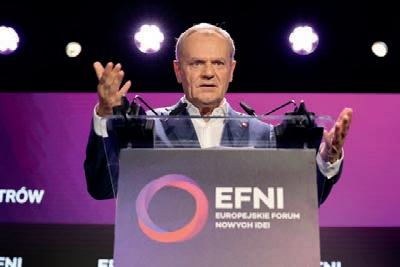

Council presidency and the 25th anniversary of its organizer, Konfederacja Lewiatan.
It brought together over 1,500 participants, including top government officials, business leaders, and academics, with over 100 panels and events.
Prime Minister Donald Tusk highlighted Poland’s economic success, emphasizing entrepreneurship as a growth driver.
Finance Minister Andrzej Domański stressed sustainable growth through investment. Deputy PM Krzysztof Gawkowski discussed Poland’s vision for a digital revolution during its presidency. Justice Minister Adam Bodnar warned about the threats of populism to minority and women’s rights.
The event concluded with the Sopot Declaration, urging bold EU reforms, and awards to notable figures, including Leszek Balcerowicz.
The inaugural Women Leaders conference took place in Warsaw on November 22, 2024, gathering professionals from business, public administration, and other sectors. The event also launched the Women on Boards business club, with over 200 members joining. A key panel explored implementing the EU’s Women on Boards directive in Polish companies and public institutions, addressing challenges, practical steps for compliance, and its potential to promote gender equality in leadership.
Panelists, including industry leaders and consultants, discussed how companies can adapt and how women can prepare for leadership roles. Agnieszka Korzeniewska of POL-MAK shared her company’s long-standing gender-balanced board model, emphasizing diversity’s role in innovation and better decision-making. POL-MAK’s pioneering e-commerce platform, B2B.pol-mak, highlights women’s impact on business growth.
Key topics included organizational culture’s role in fostering diversity, government support for businesses and women, monitoring progress, and overcoming challenges to directive implementation. The conference also served as a networking platform, encouraging the exchange of experiences and collaboration across industries.
Organized by Kamila Król, president of the European Foundation for Sustainable Investments and the City Agency, the event aims to promote women’s entrepreneurship and leadership. It is designed for professionals seeking to develop skills, share expertise, and inspire others, including male decision-makers in leadership roles. Sponsored by POL-MAK and City Agency, the free, recurring event seeks to empower participants to achieve business goals, enhance leadership competencies, and explore new opportunities for growth.

The 12th edition of the Executive Innovation Forum was held on November 27-28, 2024, at The Westin Warsaw, featured five panel discussions and six presentations, exploring innovation, digitalization, AI, cybersecurity, and ecosystem collaboration. Presentations spanned psychological, financial, legal, and security aspects of innovation, supported by case studies.
Panelists emphasized creating a sustainable culture of innovation through structured synergy between creativity, tools, and processes, rather than relying on isolated ideas. Digital transformation was hailed as a tool to enhance human capability, not replace it. Discussions on AI underscored its dual nature as an opportunity and a risk, stressing that true competitive advantage stems from innovative products or services, not AI alone.
Cybersecurity emerged as a critical concern, with experts highlighting outdated infrastructure and a shortage of skilled personnel as vulnerabilities. Strategies for prevention, damage control, and recovery were examined, emphasizing the urgent need for modernization and training.
A collaborative approach between businesses, start-ups, and research institutions was identified as vital for innovation, starting with business needs. However, limited funding, academic resistance, and insufficient business orientation in academia were noted as barriers.
The conference concluded with the “Innovation Diamonds” awards, recognizing achievements across 11 categories with 12 awards and three honorable mentions. The event spotlighted innovation as a multifaceted endeavor, requiring cross-sectoral collaboration, modernized infrastructure, and balanced integration of technology to drive progress.
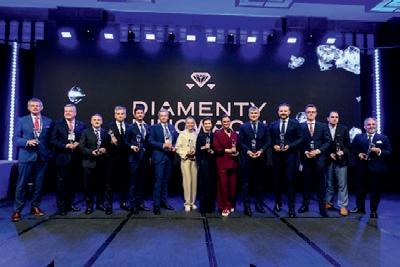
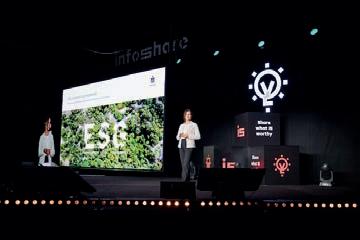
The Infoshare Katowice 2024 conference featured three stages, 70 speakers, nearly 1,000 participants, 250 one-on-one business meetings, and 120 attendees in three roundtable discussions. The event served as a platform for knowledge exchange on topics like gaming, AI, development, technology, and innovation.
Tomasz Rożek, from Nauka. To Lubię, took attendees on a journey through megatrends such as digitalization, AI, biotechnology, and demographic shifts. Jowita Michalska from Digital University explored how human augmentation, neurobiohacking, and modern technologies could push the boundaries of human capabilities. Artur Kurasiński discussed the difficulty of predicting the near future of various industries.
One of the key panels focused on building resilient tech businesses. Experts including Jarosław Sroka (KI NEXT), Bartosz Majewski (Casbeg), Kinga Piecuch (Hewlett Packard Enterprise Polska), and Wojciech Wolny (Euvic S.A.) emphasized the importance of flexibility and the ability to adapt to changing conditions, not just surviving crises.
AI was a central topic, with Michał Sadowski presenting tools to enhance business efficiency, innovation, and creativity. Paula Skrzypecka discussed the AI Act in simple terms, while Mateusz Biliński addressed the risks and limitations of AI systems, both in usage and development. Sylwia Czubkowska focused on the environmental costs associated with AI’s development.
The event also facilitated networking opportunities, with 250 matchmaking meetings allowing attendees to connect with businesses and investors, along with nearly 300 Speed Dating sessions for informal networking. Additionally, 120 people participated in Round Tables, engaging in moderated discussions with experts and industry leaders. Infoshare Katowice 2024 provided a valuable mix of insightful talks and meaningful connections, driving innovation in multiple sectors.
To call Ewa Boniecka tenacious would be an understatement. She was an unstoppable force, relentless in her pursuit of a story. More than that, she was a cornerstone—a rock, a fixture in the Warsaw Business Journal ecosystem. An inspiration like no other.
BY BEATA SOCHA
Ewa Boniecka-Bromke, my long-time colleague, a journalist I deeply admired and felt an unspoken kinship with, sadly passed away last November. Her loss is profoundly felt, but more importantly, her legacy will endure in the lives of all those she touched.
“We remember Ewa with great respect, a warm smile on our lips, and admiration for her boundless energy and determination to achieve her goals,” said Morten Lindholm, Editor-in-Chief of Warsaw Business Journal
During my time as managing editor of the magazine (2012–2019), the media landscape—and WBJ itself—underwent dramatic changes. The magazine adjusted its print schedule, the news service went through multiple iterations, and the team evolved through several incarnations. Yet one thing remained constant—not only throughout my tenure but for years before and after: Ewa. She was the one unwavering presence, the constant in a sea of change.
“Most of the issues I had the pleasure of working on included her interviews,” said Jacek Ciesnowski, Editor-in-Chief from 2013 to 2015. “Week after week, month after month, she would send us another conversation, another glimpse into the minds of Poland’s decision-makers,” he added.
Ewa was fearless in her work. She interviewed top-level figures in politics and business, her questions always sharp, direct, and unbiased. Whether speaking with a ruling prime minister, an opposition leader, a presidential candidate, or a business titan, Ewa consistently found the right questions to ask, cutting through rhetoric to get to the heart of the matter.
“Ewa was a joy to work with. Her sharp wit and incisive questions always came through in her interviews, giving WBJ readers insights and perspectives they couldn’t find anywhere else,” said Andrew Kureth, Editor-in-Chief from 2008 to 2012.
Ewa wasn’t just a remarkable journalist—she was a dream colleague. Dedicated, persistent, and reliable, she attended every business conference, awards gala, and Christmas party. We could always count on her, whether she was assigned a story or chasing down one of her own leads.
“She was a staple. Every issue had space reserved for her work, and she would always deliver. Her pieces were often the first to arrive, which is a dream for anyone working on periodicals,” Jacek Ciesnowski added.


Ewa Boniecka spent many decades building an illustrious career in journalism. She worked for the Polish Press Agency and Kurier Polski, and served as a foreign correspondent for Życie Warszawy in New York. Returning to Poland in the 1980s, she skillfully navigated the challenges of journalism under communism and found her footing in modern Poland.
“Working with Ewa was an honor and a delight. She was part of a class of editorial journalism that fades away with each generation. Ewa was a solid contributor to WBJ, and I will be saddened not to see her byline in our magazine any longer,” said Kevin Demaria, Art Director of Warsaw Business Journal
In her excellent book, Dziennikarki W Poszukiwaniu Swoich Dróg, (“Female Journalists Paving Their Paths”) 2018—I was proud to be among the guests she invited to her book launch—Ewa reflects on conversations she had with generations of women in journalism. She highlights those who came before her and the younger ones just beginning their journeys into the world of media.
Among the many insights she gathered from her decades as a journalist, one conclusion stands out as particularly relevant and a poignant reminder of why so many of us chose this profession: “The world of the media never functions separately from the evolving society it serves. It shapes the way a Kowalski in Poland and a Jones in America see their countries and the world.”
Farewell, Ewa. You will remain an inspiration for generations of journalists to come.

